Stack Exchange Network
Stack Exchange network consists of 183 Q&A communities including Stack Overflow , the largest, most trusted online community for developers to learn, share their knowledge, and build their careers.
Q&A for work
Connect and share knowledge within a single location that is structured and easy to search.

Difference between research paper and scientific paper
What is the difference between a research paper and a scientific paper? Does the research paper also mean a term paper at the end of your Masters?
I need to present a research paper. So does it mean I need to present a solution to an existing problem or does it mean a summary of various solutions already existing?
- terminology
2 Answers 2
A research paper is a paper containing original research. That is, if you do some work to add (or try to add) new knowledge to a field of study, and then present the details of your approach and findings in a paper, that paper can be called a research paper.
Not all academic papers contain original research; other kinds of academic papers that are not research papers are
- review papers, (see What is the difference between a review paper and a research paper? )
- position papers (which present an opinion without original research to support it)
- tutorial papers (which contain a tutorial introduction a topic or area, without contributing new results).
A scientific paper is any paper on a scientific subject.
Does the research paper also mean a term paper at the end of your Masters? I need to present a research paper. So does it mean I need to present a solution to an existing problem or does it mean a summary of various solutions already existing?
If the term paper at the end of your masters contains original research, then it's a research paper.
Depending on the policies of your department, you may or may not be required to attempt original research during your masters. In some departments, a review of existing literature may be fine. If you're not sure exactly what's required from you, you need to ask the relevant faculty or staff members in your department.
- Related: What is a "white paper"? . – E.P. Commented Jan 20, 2015 at 18:15
- It also bears mention that "a summary of various solutions already existing" does not usually qualify as a research paper. – E.P. Commented Jan 20, 2015 at 18:16
Research means that you add something new. Something you didn't know before, and ideally something no-one knew before (although at BSc. and MSc. levels the novelty requirement is generally relaxed). This can be a new investigation, or simply an analysis of a number existing papers. It must however not be a summary of existing solutions. It should go beyond that.
An important thing to remember is that in terms of assignment you are expected to demonstrate insight and understanding. To demonstrate this you need to engage with the topics, not merely summarise (which requires less understanding).
You must log in to answer this question.
Not the answer you're looking for browse other questions tagged terminology ..
- Featured on Meta
- Upcoming initiatives on Stack Overflow and across the Stack Exchange network...
- Announcing a change to the data-dump process
Hot Network Questions
- Is there a minimal (least?) countably saturated real-closed field?
- Can a star be made of sun spots?
- How did Sirius Black bring the Weasley family picture back from Azkaban?
- In the travel industry, why is the "business" term coined in for luxury or premium services?
- Is this "continuous" function really continuous?
- What side-effects, if any, are okay when importing a python module?
- How can I explain the difference in accuracies in different ML models?
- My result is accepted in a journal as an errata, but the editors want to change the authorship
- How would the dynamics of discourse change if your interlocutor were a superintelligent being?
- How can I get rid of/ smooth out weird/ sharp edges like this?
- Excel: Sum all quantities of unique items across all sheets
- How do I get Windows 11 to use existing Linux GPT on 6TB external HDD?
- How should I analyse TV episode popularity while accounting for time?
- Does the oven temperature for a lasagna really matter?
- How does anyone know for sure who the Prime Minister is?
- How can I learn how to solve hard problems like this Example?
- Does (and how?) darkvision work underwater?
- 6/8 or 2/4 with triplets?
- Ideas for an alternative to nuclear weapons as a deterrent?
- What does impedance seen from input/output mean?
- How can I fix this rust on spokes?
- how to say the adjectival "one-time" / "non-recurrent" in Latin
- Problems recording music from Yamaha keyboard to PC
- What is the meaning of "sutting "?
Essay vs Research Paper: Key Disparities
Table of contents
- 1.1 What Is an Essay?
- 1.2 What Is a Research Paper?
- 2.1 Purpose and Objective
- 2.2 Structure and Organization
- 2.3 Length and Depth
- 2.4 Sources and Evidence
- 2.5 Voice and Style
- 2.6 Audience and Presentation
- 3 Essay vs Research Paper: 10 Points of Difference
- 4 What Is the Difference Between Research Paper and Different Types of Papers
- 5 Let’s Sum Up
Every student needs to write some academic papers for the university. However, even young people with experience can't determine the difference between an essay and a research paper. Although these two areas of academic writing have many similarities, the requirements are still significantly different.
- In this article, you will get a clear definition of an essay and research paper.
- We will outline the key differences between these two types of academic writing.
- You will learn more about the organization, structure, essay and research paper requirements.
- Finally, you will be able to tell the difference between a research paper and an essay.
To get to the heart of the matter of these two academic assignments, we should start by getting an essay vs research paper definition.
Definition and Overview
What is an essay.
An essay is a short piece of work, the purpose of which is to present individual thoughts regarding a chosen topic. Often, essays do not pretend to be scientific but require a defined structure. The basic requirements for an essay suggest writing a five-paragraph piece that contains an introduction, a body, and a conclusion.
What makes your essay unique is your creativity and the novelty of your ideas. To easily structure your thoughts and present them clearly to the reader, you should devote time to drafting an essay . Before you start writing your essay, brainstorm the freshest ideas. Thus, even though all your classmates will use the same five-paragraph structure as you, your ideas will impress the teacher. Experiment with meaning, not form.
What Is a Research Paper?
The difference between an essay and a research paper revolves around the academic approaches. Research work is the depth of study of a selected scientific topic, which should bring scientific novelty by drawing conclusions based on existing research and experiments conducted. For students, it’s not enough to state the facts or express their point of view regarding the topic. Your task is to comprehensively study the subject of research, familiarize yourself with existing opinions, and outline the direction of the upcoming study.
Your teacher will expect you to demonstrate analytical skills, the ability to select reliable sources, and a broad theoretical base on your research topic. Research papers require creativity, erudition, and orientation in the topic.
Key Differences Between Essay and Research Paper
The central difference is the goal of these academic assignments. The essay aims to express an individual point of view and find a creative, fresh approach to an existing topic. A good research paper seeks to introduce scientific novelty by examining existing data and conducting new experiments to analyze the information obtained.
Purpose and Objective
The first and main difference between an essay and a research paper is the purpose of writing . An essay as an academic task has the goal of developing students' creative thinking. It also teaches us a structured presentation of thoughts regarding a certain topic. The student is required to have a non-standard approach, fresh thoughts, and reasoned conclusions on the given topic.
The purpose of the research work is to study a scientific topic in detail. This academic assignment is aimed at assessing the student’s analytical abilities and competence to determine cause-and-effect relationships, filter sources, and formulate logical conclusions. Such work requires theoretical knowledge, preliminary study of existing scientific works, and the ability to formulate goals and research methods.
Moreover, a student is supposed to show the capacity to draw comprehensive conclusions based on available data and information obtained during independent research. This task may seem complicated to students, so they opt for resorting to the help of PapersOwl writing service to save time.
Structure and Organization
To start with, the basic structure of any college essay involves a text consisting of five paragraphs, divided into three main factions: introduction, body part, and conclusion. When students lack time to compose a nicely structured academic essay, they can always pay to write a research paper and have their tasks done by a professional. The introduction presents the topic, sets the main direction for further text, and also works as a bait to motivate the reader to study further work. The introduction is followed by three body paragraphs. Each of the three body paragraphs presents a separate idea.
The last paragraph of any essay is a conclusion. In this paragraph, the college or university student must resume the arguments and ideas presented in the text, summarizing them into the main message of the essay. Often, the idea that you present in your conclusions will be most memorable to the reader.
Consequently, let’s overview the structure of a research paper. Compared to the structure of an essay, the organization of a research paper is much more ornate. This type of work requires a title page and abstract that go before the main body of text. On the title page, the student describes his topic of work, as well as gives contact details. An abstract is a short description of the main ideas and research methods of your work. The research work itself consists of an introduction, background, main part, and conclusions. Also, at the very end, they often add acknowledgments and a list of references, which must be formatted following the required international format.
Length and Depth
The length and depth of analysis between these two academic assignments also differ significantly. As for the essay, it is often a short prose piece whose length does not exceed 1000 words. You are faced with the task of fitting a large array of ideas into a small amount of text. The essay format itself rarely requires rigorous and thorough research of the topic, but you should work on creativity and the presence of a message in your essay. Most academic papers fall in the 300 to 600-word range.
On the other hand, a research paper is a scientific project that includes many theoretical aspects that require analysis and clarification. Thus, the volume is significantly bigger. Basic research paper lengths range from 4,000 to 6,000 words. In this case, you will no doubt have to conduct a comprehensive analysis of the selected sources, formulate a research vector, and spend time conducting your experiments, or ask PapersOwl to do a research paper for you . A research paper is a scientific project that includes many theoretical aspects that require analysis and clarification.
Sources and Evidence
The presence of theoretical sources and references is not a mandatory requirement for an essay. You can state your own thoughts on a given topic without resorting to the help of existing sources. Present your ideas on the topic, giving arguments that seem logical to you. If you do decide to base your paper on existing works, you must be sure to indicate where the information was taken from. And yet, the teacher needs to see your own thoughts rather than a dry listing of existing ideas.
Unlike an essay, a quality research paper must include primary and secondary sources, as well as a specific citation format. Surely, you are not the first person to study this scientific topic. In order not to repeat existing thoughts, you need to conduct a search to form a reliable basis for your study. If you skip this step, you risk basing your paper on misleading scientific findings.
Voice and Style
The very specificity of the essay as an academic paper is the subjective presentation of information. A large percentage of your essay should consist of your perspective and vision of the chosen topic. For this reason, essays often use a less formal and more subjective tone. However, you can still use a large amount of colloquial vocabulary, completely disregarding the norms of formal style. Students often have trouble figuring out the right style for their university assignments. In such cases, a reasonable solution is to seek help from a specialist. When you buy custom-written essays from PapersOwl, you’ll always get a perfectly balanced academic paper.
On the other hand, a research paper is a serious scientific work. The student must maintain a formal tone while complying with all structural requirements. Also, in investigative work, there is little room for subjectivity and a personal approach since an objective style is required. At the same time, do not oversaturate your research work with formalism and standard clichés.
Audience and Presentation
The essay format can be used both in the educational process and in an independent literary style. Therefore, the audience for such a written assignment can be wide and varied. When you’re writing an essay, make sure it’s understandable in academia and for a wide audience.
Research work, on the contrary, is aimed at a range of professionals in the chosen field. Written in scientific language, the goal of this work is to attract the attention of scientists and students of certain majors. Your scientific work should be rich in theory and related terms.
Essay vs Research Paper: 10 Points of Difference
As you may have noticed, research papers and essays have many differences, both global and specific. These two types of academic assignments differ in the purpose of writing, have different structures and formats, and are aimed at testing different skills. And yet, every day, students face difficulties in understanding the basic requirements, which leads to incorrect execution of the task. To summarize the main differences, let's look at the table below.
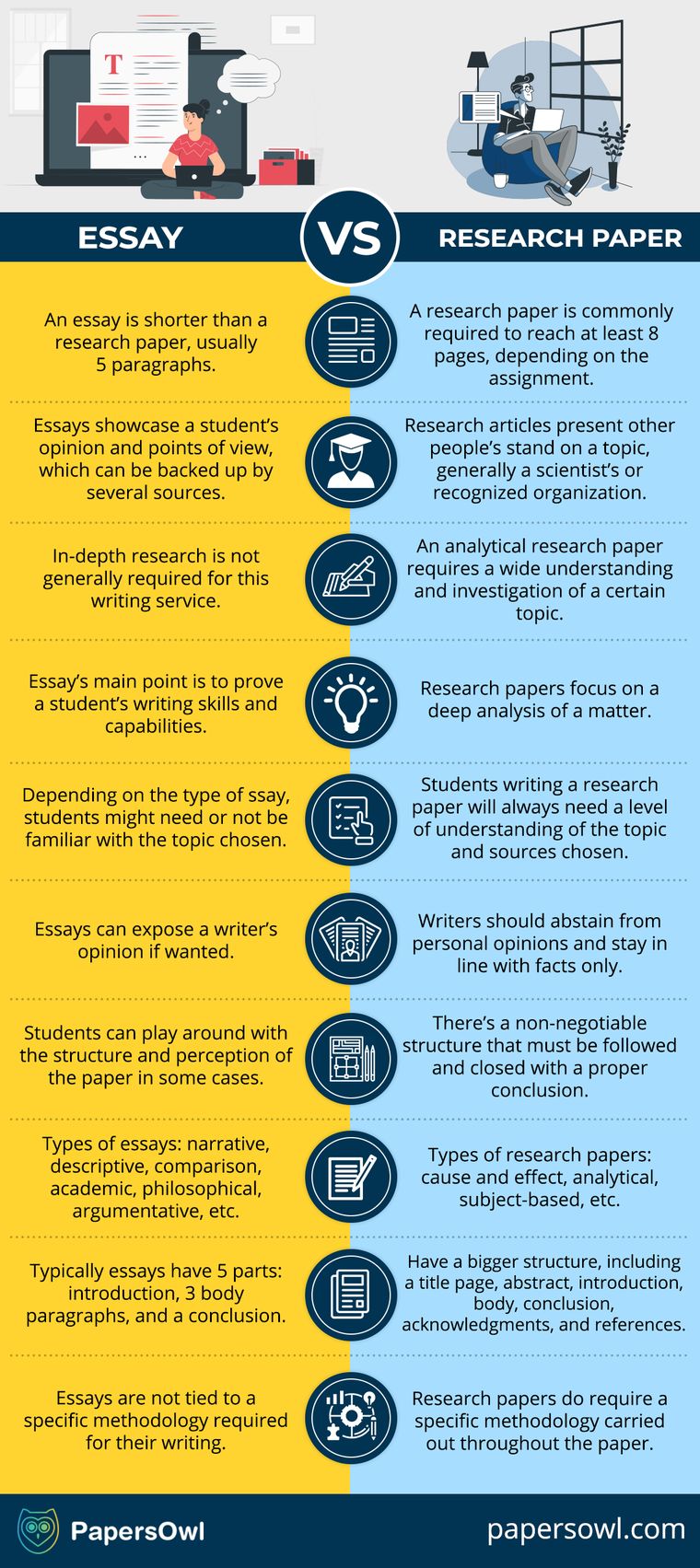
What Is the Difference Between Research Paper and Different Types of Papers
There are many types of papers, each focusing on different topics, serving different purposes, and requiring a specific structure. Those are different types of essays that share a common ground but differ in the way they present information and arguments.
Analytical paper. The purpose of such an essay is an in-depth analysis of the chosen topic, studying different approaches and points of view, and formulating one’s own conclusions based on the information studied and scientific evidence.
Argumentative paper. This type of essay takes as a basis an ambiguous topic; the author must take a certain position and provide a number of arguments.
Informative paper. It has an informative purpose — a presentation of information to the reader, preceded by careful analysis and selection of data.
Persuasive paper . The purpose of this paper is to present convincing arguments, using chosen writing techniques, confirming the author’s position regarding the selected scientific topic.
To get a high grade, you need to understand the requirements of academic requirements. No matter how informatively rich your work is, if it does not meet the requirements, it cannot be highly appreciated. Each type of academic assignment has its own clearly defined, unique format. It’s necessary to know the difference between a research paper vs argumentative essay so as not to get confused while completing a college assignment. So before you start writing an assignment, make sure you understand the type of academic writing required of you.
Let’s Sum Up
Research papers and essays are aimed at testing various skills of the student, following different structures, and having several requirements. An essay is a more creative writing task, which involves showing originality and expressing a personal opinion on a certain topic. At the same time, a research paper is a type of scientific writing that adheres to a strict structure and uses a formal tone. Understanding the main differences will make your writing process easier, saving you time researching the requirements. Remember that knowing the essence of the assignment is a key factor in writing a decent paper.
Readers also enjoyed

WHY WAIT? PLACE AN ORDER RIGHT NOW!
Just fill out the form, press the button, and have no worries!
We use cookies to give you the best experience possible. By continuing we’ll assume you board with our cookie policy.

Get science-backed answers as you write with Paperpal's Research feature
What is an Academic Paper? Types and Elements

Written by students, early career scholars and researchers, an academic paper presents original research findings and case studies with the aim of contributing to the existing body of knowledge on a particular subject. Characterized by their rigorous and systematic approach to research, academic papers contribute to building a researcher’s reputation as an expert within their field, with the number of citations received serving as a measure of the impact that the researcher’s work has had. Unlike other forms of writing, academic papers demand a stringent adherence to specific formats, the use of formal language, and careful attention to detail. Typically, the information shared in academic papers is presented in well-defined sections like title and abstract, introduction, methodology, results, discussion, and conclusion. Many types of academic papers are employed for different situations and scopes. Let’s take a look at some of the different types of academic papers.
Types of academic papers
Academic papers are differentiated based on the context of the paper, its length and structure, its purpose and who it addresses.
- Research papers are the most common type of academic paper and present original research, usually conducted by PhD students who conduct in-depth investigations in their chosen field of study.
- Review papers, or literature reviews are academic papers that provide a comprehensive analysis and synthesis of existing research on a specific topic. They only assess existing literature on a subject and do not involve any empirical experiment. The methodology mentioned in review papers refers to the methods used to collect research.
- Case studies: Researchers create this type of academic paper when they want to undertake and present their study on particular subjects, concepts, or incidents. Typically involving reasonably in-depth analysis of a topic, case studies can be beneficial for understanding certain historical events in recent times, such as market crashes or natural disasters, especially for future uses.
- Position papers: Academic papers that present an author’s stance on a particular issue or topic are called position papers. Researchers must present facts and evidence to support their views systematically. This kind of academic paper is commonly used in policy-making and legal professions.
- Conference papers: These constitute a summary of any of the above types of academic papers to a length that can be appropriately discussed at a meeting or conference. Conference papers are usually presented when researchers want to introduce a new concept or gather insights from other experts on their work.
- Theoretical reports: These are articles written by researchers who are working on formulating new theories based on existing research and provide an in-depth look at a specific topic based on existing literature and theoretical foundations.
Elements of an academic paper
Research papers are different from fiction writing as they require rigorous citations, adherence to structure and appropriate styles to be accepted in academia. Every research paper has some key elements which make it identifiable as a research paper and make the theme of the paper clearly understood, along with the process involved with the said paper. As such, these rules must be adhered to while writing academic papers. Many publishing journals will have their guidelines, so be prepared to tweak your format in accordance with those guidelines. A typical format consists of the following key elements –
- Title and Abstract: The title introduces the topic of the academic paper in a catchy, concise way, while the abstract gives us a summary of the whole paper. The abstract helps readers get an idea about the paper without having to read the entire paper.
- Introduction: Usually placed at the start of an academic paper, the introduction enables researchers to better understand the topic of study. It highlights the research question, the scope of the research, its context, and its relevance.
- Methodology: This section of the academic paper typically constitutes its main body. Researchers must provide a detailed, step-by-step account of the methodology followed to arrive at the findings. This section is important as it helps readers understand how you arrived at your conclusions and enables them to recreate the experiment—not just to verify the findings but also perhaps to build on it in the future.
- Results: Typically placed towards the later part of an academic paper, the results section is where researchers can present their research findings in an accurate and detailed manner. Experts suggest using visual tools like graphs, tables and infographics when sharing numeric data and statistics. The results must be communicated in simple, clear, unambiguous language that readers can easily understand.
- Discussion: Sometimes grouped with the results section, the discussion section is where research findings are discussed in detail. Researchers discuss the implications and limitations of their work and share the potential for further research.
- Conclusion: The conclusion summarizes the entire academic paper, from the introduction and methodology to the results and discussion. It reinforces key messages and highlights important concepts and themes.
- References : This section of the academic paper lists the sources of information mentioned in the article as a bibliography so that the reader is able to refer to the sources. Ensuring accuracy in citations is imperative to avoid allegations of plagiarism, even if it was inadvertent.
Different types of academic papers are employed based on the context of the paper, its length and structure, its purpose, and who it addresses. While each type of academic paper has its unique features, they all share a common set of critical elements that make them identifiable as research papers. By understanding and following these essential elements, researchers can effectively communicate their research findings and make meaningful contributions to their field of study.
Paperpal is a comprehensive AI writing toolkit that helps students and researchers achieve 2x the writing in half the time. It leverages 21+ years of STM experience and insights from millions of research articles to provide in-depth academic writing, language editing, and submission readiness support to help you write better, faster.
Get accurate academic translations, rewriting support, grammar checks, vocabulary suggestions, and generative AI assistance that delivers human precision at machine speed. Try for free or upgrade to Paperpal Prime starting at US$19 a month to access premium features, including consistency, plagiarism, and 30+ submission readiness checks to help you succeed. Experience the future of academic writing – Sign up to Paperpal and start writing for free!
Related Reads:
What are the different types of research papers.
- How to Write Effective Brief Communications
- How to Write a Good Humanities Research Paper
- Ethical Research Practices For Research with Human Subjects
Should You Use AI Tools like ChatGPT for Academic Writing?
Authorship in academia: ghost, guest, and gift authorship, you may also like, research funding basics: what should a grant proposal..., how to write the first draft of a..., mla works cited page: format, template & examples, academic editing: how to self-edit academic text with..., measuring academic success: definition & strategies for excellence, phd qualifying exam: tips for success , quillbot review: features, pricing, and free alternatives, 9 steps to publish a research paper, how to make translating academic papers less challenging.
Stack Exchange Network
Stack Exchange network consists of 183 Q&A communities including Stack Overflow , the largest, most trusted online community for developers to learn, share their knowledge, and build their careers.
Q&A for work
Connect and share knowledge within a single location that is structured and easy to search.
Difference between Paper and Article for scientific writings
As I know, in most of situations (in scientific context) these two terms are used to point to same thing and even they are used interchangeably.
For example,
Theory of value with public goods: A survey article
A survey paper on cloud computing
Are there any major differences between them? and can we use them interchangeably in any context?
- differences
- 1 See also: article vs paper – Martin Thoma Commented Nov 24, 2019 at 11:46
3 Answers 3
The following extract helps understand the difference between a research article and a research paper :
Research paper and research articles are pieces of writing that require critical analysis, inquiry, insight, and demonstration of some special skills from students and scientists. It is really overwhelming for students when their teachers ask them to write a research paper as a form of assignment. Students remain confused between a research paper and a research article because of their similarities. This article attempts to find out if the two terms are synonymous or there is any difference between the two.
Research Article
What do you do when you are a scientist or a scholar and have arrived at a solution to a problem or have made a discovery that you want to share with the world? Well, one of the best ways to let the world know about your piece of wisdom or knowledge is through a research article. This is a piece of writing that contains an original research idea with the relevant data and findings Research article is published in renowned scientific journals that are involved with works in the area to which the paper pertains. A research article is a paper or writing that informs people of a path breaking research or a finding with clinical data to support the finding.
Research Paper
Research is an activity that is given much importance in academics, and this is why assignments requiring research and technical writing start early in the school. Students are asked to submit a research paper as early as in High School, and they become used to the concept when they are pursuing higher studies in colleges. However, a research paper is not just these assignment papers written by students as those written by scholars and scientists and published in journals are also referred to as research papers.
- What is the difference between Research Article and Research Paper?
• There is no difference as such between a research article and a research paper and both involve original research with findings. • There is a trend to refer to term papers and academic papers written by students in colleges as research papers whereas articles submitted by scholars and scientists with their groundbreaking research are termed as research articles. • Research articles are published in renowned scientific journals whereas papers written by students do not go to journals.
(www.differencebetween.com)
There is no definitive distinction between papers and articles that can be applied to all scientific disciplines. Usage varies between disciplines. and within disciplines it can vary depending on context.
Both the examples quoted refer to ‘writings’ that are surveys (in other areas often termed reviews) — one in the field of a social science (economics) and the other in a numerical science (computing). However the term science is also (and perhaps more) associated with the experimental sciences (physics, chemistry and biology), where the types of ‘writings’ are different and where different words are used to distinguish them.
Articles and papers in the Experimental Sciences
Let me illustrate this for the Biomolecular Sciences (biochemistry, molecular biology, molecular genetics and the like). As a practitioner in this area, when I hear these terms, e.g. talking to colleagues, I understand:
Paper : A report of a piece of experimental research work in which the original data presented by the authors was central to interpretation and conclusions regarding advancement of knowledge and understanding of the field. Article : A review or commentary in which the author was discussing the previously published work of others (perhaps including his own) in attempting to provide a perspective of the field or to present a new theory/model/interpretation by integrating such work.
However, despite this professional conversational use of the terms, if I go to any specific journal — here the US heavyweight, Journal of Biological Chemistry (JBC) — I would find a somewhat different usage:
JBC publishes several types of articles but only two of those can be submitted as an unsolicited manuscript: regular papers and accelerated communications.
Thus, JBC regards all the ‘writings’ it publishes as ‘articles’, in common with other journals such as The Journal of Biophysics , and this is consistent with general non-scientific usage — “I read an article in the Financial Times yesterday…”
The way JBC uses ‘regular paper’, is consistent with my specialist conversational definition (above), and although it doesn’t actually say what types of ‘article’ are unsolicited, but if you look at a table of contents of the journal , you would conclude that for this journal it is ‘minireviews’ and historical appraisals of the work of individual scientists.
The Journal of Biophysics only uses the term ‘paper’ in describing only one of its categories of ‘article’:
Comments to the Editor | Short commentaries on a paper published earlier in BJ.
Again using ‘paper’ rather in the sense I defined above.
To conclude, in the extended sense used by peer-reviewed journals in the experimental sciences, all published ‘papers’ can be referred to as articles, but not all articles would be referred to as ‘papers’. (One wouldn’t use ‘paper’ for an editorial, a news item and generally not for a review.) This is exactly the opposite conclusion reached by @1006a from his reading of the OED.
Conflict with the OED and non-experimental sciences
How can one resolve the conflict with the OED, mentioned above? I think the OED describes more traditional usage in the non-experimental sciences and the arts. It is pertinent, in this respect, to consider the phrase “reading a paper” .
As far as my area of science goes, this is just a rather outdated term for presenting one’s results orally at a conference. The talk in itself is transitory, the abstract unreviewed, and the information conveyed will most probably be published elsewhere.
However for colleagues in computing science the talk is likely to be based on a ‘paper’ that has been submitted to the conference organisers, selected after peer-review, and will be published as conference proceedings or in a journal associated with the conference. This is more in line with traditional non-scientific academic presentations, although in this case the ‘paper’ might never have been published.
The difference would seem to derive in part from whether the field of science is one in which original work is in the form of ideas or in the form of measurements and their interpretation.
The distinction I would make is that an article is formally published, generally in some kind of periodical. The relevant definition, from Oxford Dictionaries:
A piece of writing included with others in a newspaper, magazine, or other publication.
Scholarly/scientific/research articles are thus "pieces of writing included with others in" an appropriate publication, most often an academic journal (see Wikipedia).
A paper , on the other hand, may or may not be published anywhere; and if it is published, may be in some alternate venue like conference proceedings (though it can be published in a scholarly journal). Again from Oxford:
An essay or dissertation, especially one read at an academic lecture or seminar or published in an academic journal.
So you can generally call any scientific (research) article a paper, but not all papers are articles.
Edited to clarify the last sentence, to which I also added the parenthetical (research):
Of course, not all articles are scientific (or research ) articles; that distinction generally means that the article presents original research, and as I am using it, that it has met certain standards of whichever field it represents (usually some form of peer review) so that it can be published in a scientific/scholarly journal. A scientific (research) paper meets the first of these criteria, but not necessarily the second (it presents original research, but may or may not be published). There are other kinds of articles/papers, which would ordinarily get a different modifier, like review or meta-review (or newspaper/magazine etc. for articles), or might commonly go by other terms altogether, like essay .
By this definition, not all articles are papers, and not all papers are articles, but all scientific (research) articles are also scientific (research) papers.
- Just to mention that in my consideration of experimental sciences I present the opposite conclusion from that you draw from the OED. Please don't think I am saying you are wrong, but as I explain, that your assertions only hold for certain areas of science. – David Commented Jul 15, 2017 at 22:27
- @David The key distinction I make is that articles are published . That would, indeed, include things like (literature) review articles, commentary, and possibly book reviews. It does not exclude original research in any field of which I am aware (which includes "experimental science"). It is certainly possible that certain disciplines or specific journals have non-standard usages, but I don't believe it breaks down along "experimental" and "non-experimental" lines. – 1006a Commented Jul 16, 2017 at 16:38
- I agree about there being a difference in relation to publication. The whole background of "reading a paper" implies it can exist without being published, and even in the experimental sciences one might say "I wrote a paper about 'whatever' and sent it to such-and-such a Journal, but they rejected it because the referees were too stupid to understand it". You might feasibly say that about an article (I once had a solicited mini-review rejected because it was thought to be in bad taste) but it would be unusual. But a very popular program for storing PDFs of publications is called... "Papers". – David Commented Jul 16, 2017 at 16:53
Your Answer
Sign up or log in, post as a guest.
Required, but never shown
By clicking “Post Your Answer”, you agree to our terms of service and acknowledge you have read our privacy policy .
Not the answer you're looking for? Browse other questions tagged meaning differences science or ask your own question .
- Featured on Meta
- Announcing a change to the data-dump process
- Upcoming initiatives on Stack Overflow and across the Stack Exchange network...
- We spent a sprint addressing your requests — here’s how it went
Hot Network Questions
- Continued calibration of atomic clocks
- RegionPlot does not work appropriately
- My result is accepted in a journal as an errata, but the editors want to change the authorship
- How does the Sega Master System handle a sprite moving off the left edge of the screen?
- LuaLaTeX: change font id does not work with a non default font
- What is the meaning of "sutting "?
- Is there a minimal (least?) countably saturated real-closed field?
- Excel in both teaching and research as a junior faculty member
- Rules/guidelines about rerouting flights in the EU
- What is the next layers of defence against cookie stealing if GET parameter is vulnerable to XSS and there is no HttpOnly flag in a website?
- ミラさん が すんで いた うち を かいました。who brought the house? Me or mira san?
- How should I analyse TV episode popularity while accounting for time?
- Why does ansible reevaluate a variable on each access
- Why is animateinline stretching my text, and how can I stop it?
- o y u (or and or)
- Keeping US Citizenship While Living Abroad (Japan)
- How can I explain the difference in accuracies in different ML models?
- how to round numbers after comma everytime up
- A Ring of Cubes
- I feel guilty about past behavior in my college
- Calculate sum of self-exponentation
- How did Sirius Black bring the Weasley family picture back from Azkaban?
- Why do the Fourier components of a piano note shift away from the harmonic series?
- Mechanism behind a pink human skeleton
Reference management. Clean and simple.
Types of research papers

Analytical research paper
Argumentative or persuasive paper, definition paper, compare and contrast paper, cause and effect paper, interpretative paper, experimental research paper, survey research paper, frequently asked questions about the different types of research papers, related articles.
There are multiple different types of research papers. It is important to know which type of research paper is required for your assignment, as each type of research paper requires different preparation. Below is a list of the most common types of research papers.
➡️ Read more: What is a research paper?
In an analytical research paper you:
- pose a question
- collect relevant data from other researchers
- analyze their different viewpoints
You focus on the findings and conclusions of other researchers and then make a personal conclusion about the topic. It is important to stay neutral and not show your own negative or positive position on the matter.
The argumentative paper presents two sides of a controversial issue in one paper. It is aimed at getting the reader on the side of your point of view.
You should include and cite findings and arguments of different researchers on both sides of the issue, but then favor one side over the other and try to persuade the reader of your side. Your arguments should not be too emotional though, they still need to be supported with logical facts and statistical data.
Tip: Avoid expressing too much emotion in a persuasive paper.
The definition paper solely describes facts or objective arguments without using any personal emotion or opinion of the author. Its only purpose is to provide information. You should include facts from a variety of sources, but leave those facts unanalyzed.
Compare and contrast papers are used to analyze the difference between two:
Make sure to sufficiently describe both sides in the paper, and then move on to comparing and contrasting both thesis and supporting one.
Cause and effect papers are usually the first types of research papers that high school and college students write. They trace probable or expected results from a specific action and answer the main questions "Why?" and "What?", which reflect effects and causes.
In business and education fields, cause and effect papers will help trace a range of results that could arise from a particular action or situation.
An interpretative paper requires you to use knowledge that you have gained from a particular case study, for example a legal situation in law studies. You need to write the paper based on an established theoretical framework and use valid supporting data to back up your statement and conclusion.
This type of research paper basically describes a particular experiment in detail. It is common in fields like:
Experiments are aimed to explain a certain outcome or phenomenon with certain actions. You need to describe your experiment with supporting data and then analyze it sufficiently.
This research paper demands the conduction of a survey that includes asking questions to respondents. The conductor of the survey then collects all the information from the survey and analyzes it to present it in the research paper.
➡️ Ready to start your research paper? Take a look at our guide on how to start a research paper .
In an analytical research paper, you pose a question and then collect relevant data from other researchers to analyze their different viewpoints. You focus on the findings and conclusions of other researchers and then make a personal conclusion about the topic.
The definition paper solely describes facts or objective arguments without using any personal emotion or opinion of the author. Its only purpose is to provide information.
Cause and effect papers are usually the first types of research papers that high school and college students are confronted with. The answer questions like "Why?" and "What?", which reflect effects and causes. In business and education fields, cause and effect papers will help trace a range of results that could arise from a particular action or situation.
This type of research paper describes a particular experiment in detail. It is common in fields like biology, chemistry or physics. Experiments are aimed to explain a certain outcome or phenomenon with certain actions.

May 19, 2021
What is an Academic Paper?
Why academic writing is different from writing you have done in high school.
Please review our policies before setting an appointment .
The Odegaard Writing & Research Center Email: [email protected]
Be boundless
Connect with us:.
© 2024 University of Washington | Seattle, WA
Canvas | University | Ask a Librarian
- Library Homepage
- Arrendale Library
Writing a Research Paper
Types of research papers.
- About This Guide
- Choosing a Topic
- Writing a Thesis Statement
- Gathering Research
- Journals and Magazines This link opens in a new window
- Creating an Outline
- Writing Your Paper
- Citing Resources
- Academic Integrity This link opens in a new window
- Contact Us!
Call us at 706-776-0111
Chat with a Librarian
Send Us Email
Library Hours
Although research paper assignments may vary widely, there are essentially two basic types of research papers. These are argumentative and analytical .
Argumentative
In an argumentative research paper, a student both states the topic they will be exploring and immediately establishes the position they will argue regarding that topic in a thesis statement . This type of paper hopes to persuade its reader to adopt the view presented.
Example : a paper that argues the merits of early exposure to reading for children would be an argumentative essay.
An analytical research paper states the topic that the writer will be exploring, usually in the form of a question, initially taking a neutral stance. The body of the paper will present multifaceted information and, ultimately, the writer will state their conclusion, based on the information that has unfolded throughout the course of the essay. This type of paper hopes to offer a well-supported critical analysis without necessarily persuading the reader to any particular way of thinking.
Example : a paper that explores the use of metaphor in one of Shakespeare's sonnets would be an example of an analytical essay.
*Please note that this LibGuide will primarily be concerning itself with argumentative or rhetorical research papers.
- << Previous: About This Guide
- Next: Choosing a Topic >>
- Last Updated: May 16, 2024 10:46 AM
- URL: https://library.piedmont.edu/research_paper
- Ebooks & Online Video
- New Materials
- Renew Checkouts
- Faculty Resources
- Library Friends
- Library Services
- Our Mission
- Library History
- Ask a Librarian!
- Making Citations
- Working Online
Arrendale Library Piedmont University 706-776-0111

Home » Education » What is the Difference Between Thesis and Research Paper
What is the Difference Between Thesis and Research Paper
The main difference between thesis and research paper is that thesis is a long academic paper that typically serves as the final project for a university degree, while research paper is a piece of academic writing on a particular topic.
In brief, both thesis and research paper are types of academic writing students need to complete in their academic life. While there are many similarities between the two, including the use of academic writing and structure, they are not the same.
Key Areas Covered
1. What is a Thesis – Definition, Features 2. What is a Research Paper – Definition, Features 3. Difference Between Thesis and Research Paper – Comparison of Key Differences

What is a Thesis
A thesis is a long paper that typically serves as the final project for a university degree. Submitting a thesis is generally required for completing undergraduate honours, masters , and doctoral degrees . The theses are very long and may contain hundreds of pages. They are also scholarly in nature and allows students to contribute valuable research in their field of study.
Moreover, a major part of a thesis work involves research and writing. It generally has advanced research design and analysis. When writing a thesis, the students will have to prove or disapprove a hypothesis , and their conclusions have to be backed by extensive research and an insightful, learned description of how they got to that conclusion. In some degree programs, students also have to perform an oral defence of the thesis paper in front of a panel of experts.
Components of a Thesis
These are the components you will usually find in a thesis paper.
- Title Page
- Abstract
- Table of Contents
- List of Figures
- List of Tables
- Introduction
- Methods
- Discussion
- Conclusions
- Recommendations
- Acknowledgements
- References
What is a Research Paper
A research paper is a type of academic writing that involves research, source evaluation, critical thinking, organization, and composition. Moreover, through a research paper, students can explore, interpret, and evaluate sources related to a particular topic. In fact, primary and secondary sources are very important components of a research paper. But it’s important to note that a research paper is not just a summary of a topic using primary and secondary sources. It’s not just an opinion essay or an expository essay that contains the writer’s opinions and views, either. A research paper is a type of writing that requires evaluating different sources and interpreting the information of these sources through one’s own lens. Furthermore, the main purpose of this type of writing is to offer a unique perspective on a topic analyzing and evaluating what others have already said about it.

In addition, there are different types of research papers. Argumentative research papers and analytical research papers are two of the main types of research papers.
Difference Between Thesis and Research Paper
A thesis or dissertation is a long academic paper that typically serves as the final project for a university degree while a research paper is a type of academic writing that involves research, source evaluation, critical thinking, organization, and composition.
In an Academic Context
In an academic context, students may be required to write research papers for assignments and homework, but a thesis is usually the final project.
A thesis tends to be longer than a research paper; in fact, a thesis can take many months, sometimes years, to complete.
Supervision
The thesis is written under the supervision of one or more academic supervisors whereas research papers usually do not have supervisors.
Students have to complete a thesis in order to complete their degree, whereas students write research papers to expand their knowledge.
In brief, the main difference between thesis and research paper is that thesis is a long research paper that typically serves as the final project for a university degree, while a research paper is a piece of academic writing on a particular topic. Moreover, in an academic context, students may be required to write research papers for assignments and homework. But the thesis is usually the final project.
1. Stute, Martin. “ How to Write Your Thesis .” Columbia University. 2. “ Genre and the Research Paper .” Purdue Writing Lab.
Image Courtesy:
1. “ Research Paper ” (CC BY-SA 3.0) By Nick Youngson via Alpha Stock Images
About the Author: Hasa
Hasanthi is a seasoned content writer and editor with over 8 years of experience. Armed with a BA degree in English and a knack for digital marketing, she explores her passions for literature, history, culture, and food through her engaging and informative writing.
You May Also Like These
Leave a reply cancel reply.
- Privacy Policy

Home » Scholarly Paper – Format, Example and Writing Guide
Scholarly Paper – Format, Example and Writing Guide
Table of Contents

Scholarly Paper
Definition:
Scholarly paper is a piece of academic writing that presents original research or analysis on a particular topic. It is usually written by scholars or experts in a particular field of study and is intended for an audience of other scholars or researchers. Scholarly papers typically follow a specific format and include a literature review , research methods , findings , and conclusions .
Scholarly papers are often published in academic journals or conference proceedings and are subjected to a rigorous peer-review process to ensure the quality and validity of the research presented. These papers contribute to the body of knowledge in a particular field and help advance understanding and knowledge in that area.
How to Write Scholarly Paper
Writing a scholarly paper involves several important steps that need to be followed to ensure that your work meets the high standards of academic writing. Here are some general guidelines to help you write a scholarly paper:
- Choose your topic: Your topic should be narrow enough to be manageable but broad enough to provide sufficient scope for research.
- Conduct research: Research your topic thoroughly using a range of sources, including books, academic journals, and online databases. Keep track of your sources and take detailed notes.
- Create an outline: Develop a clear and logical structure for your paper. Your outline should include an introduction, a literature review, a methodology section, results, discussion, and conclusion.
- Write your introduction : Introduce your topic and provide some background information. Clearly state your research question or hypothesis and explain why your research is important.
- Write your literature review: Summarize the existing research on your topic, highlighting key findings, debates, and gaps in the literature. Use the literature review to provide context for your research question.
- Write your methodology section : Explain how you conducted your research and what methods you used. Be clear about your sample, data collection procedures, and data analysis techniques.
- Present your results: Report your findings in a clear and organized way. Use tables, graphs, and charts to help visualize your data.
- Discuss your findings : Interpret your results and explain their significance. Relate your findings back to your research question and literature review. Discuss any limitations of your study.
- Write your conclusion: Summarize your main findings and their implications. Discuss the contributions of your research and its potential impact. Identify areas for further research.
- Edit and proofread: Review your paper carefully for errors in grammar, spelling, and punctuation. Ensure that your paper is well-organized and that your arguments are clear and concise.
Scholarly Paper Format
The format of a scholarly paper can vary slightly depending on the specific requirements of the academic institution or journal. However, most scholarly papers follow a similar structure, which typically includes the following sections:
- Title page : This includes the title of the paper, the author’s name, the name of the institution, and the date of submission.
- Abstract: This is a brief summary of the paper, typically no more than 250 words, that describes the purpose, methods, and findings of the study.
- Introduction : This section provides background information on the topic and outlines the research questions or hypotheses that the study aims to address.
- Literature review : This section provides a summary of existing research on the topic and discusses how the current study fits within the broader context of the field.
- Methods : This section describes the research design, data collection methods, and data analysis techniques used in the study.
- Results : This section presents the findings of the study in a clear and concise manner, using tables, graphs, or other visual aids as necessary.
- Discussion : This section interprets the findings of the study and discusses their implications for the broader field. It may also address limitations of the study and suggest directions for future research.
- Conclusion : This section summarizes the key findings of the study and highlights their importance.
- References : This section lists all sources cited in the paper, following a specific citation style (such as APA or MLA).
Example of Scholarly Paper
Example of Scholarly Paper structure is as follows::
I. Introduction
A. Background and context
B. Research question or thesis statement
C. Importance of the research
D. Objectives or goals of the study
II. Literature Review
A. Overview of the relevant literature
B. Key concepts or theories
C. Methodologies used in previous research
D. Gaps or limitations in previous research
E. How the current study addresses those gaps
III. Methodology
A. Research design
B. Participants or subjects
C. Data collection methods
D. Data analysis procedures
E. Ethical considerations
IV. Results
A. Description of the data
B. Statistical analyses
C. Findings related to research question
D. Supporting evidence
V. Discussion
A. Interpretation of results
B. Implications of findings
C. Limitations of the study
D. Suggestions for future research
VI. Conclusion
A. Summary of main points
B. Implications for practice
C. Contributions to the field
D. Concluding thoughts
VII. References
A. List of sources cited in the paper
VIII. Appendices (if necessary)
A. Supplementary materials such as graphs, tables, or figures
B. Informed consent forms C. Other supporting documentation.
Purpose of Scholarly Paper
Scholarly papers serve various purposes depending on the field of study and the intended audience. Here are some purposes of scholarly papers:
- To advance knowledge : One of the main purposes of scholarly papers is to contribute to the advancement of knowledge in a particular field. Scholars conduct research, analyze data, and present their findings in a scholarly paper to build upon existing knowledge or introduce new ideas.
- To communicate research: Scholarly papers are a means of communicating research findings to other scholars, practitioners, and the general public. Through scholarly papers, researchers can share their insights, data, and interpretations with others, leading to a better understanding of the topic under study.
- To review literature : Scholarly papers may also serve as literature reviews, which summarize and synthesize existing research on a particular topic. Literature reviews help to identify gaps in knowledge, highlight areas for further research, and inform research questions.
- To support academic evaluation : Scholarly papers can be used to evaluate academic progress and achievement, such as in the form of thesis and dissertation papers. These papers are expected to demonstrate a student’s mastery of the subject matter and their ability to conduct independent research.
- To inform policy and practice: Finally, scholarly papers can inform policy and practice by providing evidence-based recommendations for decision-making. Scholars may conduct research on social, economic, or environmental issues and present their findings in a scholarly paper, which can then be used by policymakers, practitioners, and other stakeholders to inform their decisions and actions.
When to Write Scholarly Paper
Here are some situations where you might need to write a scholarly paper:
- Academic Requirements: If you are a student pursuing an academic degree, you may be required to write scholarly papers as part of your coursework or to fulfill the requirements for your degree program.
- Publishing Research: If you are a researcher, scholar, or academic, you may need to write scholarly papers to publish your research findings or analysis in academic journals, conference proceedings, or other scholarly publications.
- Grants and Funding : If you are applying for grants or funding to support your research or academic work, you may be required to submit scholarly papers as part of your application.
- Professional Development : Writing scholarly papers can help you develop your writing and research skills, and can also help you build your reputation as an expert in your field.
Advantages of Scholarly Paper
Some Advantages of Scholarly Paper are as follows:
- Credibility : Scholarly papers are usually written by experts in their respective fields, and the information presented in these papers is rigorously researched, verified, and reviewed by peers. This gives them a high level of credibility and makes them reliable sources of information.
- Access to new information: Scholarly papers often report on new findings and discoveries in a specific field, making them an important source of new information. Reading these papers can help researchers and professionals stay up-to-date with the latest developments in their field.
- In-depth analysis: Scholarly papers typically include a detailed analysis of the research question, methodology, and results. This level of detail helps readers understand the research and its implications more thoroughly.
- Peer review: Scholarly papers undergo a rigorous peer-review process in which experts in the field review the paper before it is published. This process ensures that the paper meets high standards of quality and accuracy.
- Citation: Scholarly papers are often cited by other researchers and professionals in the field, which helps to build a body of knowledge and establish the author’s expertise.
About the author
Muhammad Hassan
Researcher, Academic Writer, Web developer
You may also like

Evidence – Definition, Types and Example

What is Sociology – Definition and Overview

What is Art – Definition, Types, Examples

What is History – Definitions, Periods, Methods

What is Literature – Definition, Types, Examples

Chemist – Definition, Types and Work Area
[email protected]
- English English Spanish German French Turkish

Thesis vs. Research Paper: Know the Differences
It is not uncommon for individuals, academic and nonacademic to use “thesis” and “research paper” interchangeably. However, while the thesis vs. research paper puzzle might seem amusing to some, for graduate, postgraduate and doctoral students, knowing the differences between the two is crucial. Not only does a clear demarcation of the two terms help you acquire a precise approach toward writing each of them, but it also helps you keep in mind the subtle nuances that go into creating the two documents. This brief guide discusses the main difference between a thesis and a research paper.

This article discusses the main difference between a thesis and a research paper. To give you an opportunity to practice proofreading, we have left a few spelling, punctuation, or grammatical errors in the text. See if you can spot them! If you spot the errors correctly, you will be entitled to a 10% discount.
It is not uncommon for individuals, academic and nonacademic to use “thesis” and “research paper” interchangeably. After all, both terms share the same domain, academic writing . Moreover, characteristics like the writing style, tone, and structure of a thesis and research paper are also homogenous to a certain degree. Hence, it is not surprising that many people mistake one for the other.
However, while the thesis vs. research paper puzzle might seem amusing to some, for graduate, postgraduate and doctoral students, knowing the differences between the two is crucial. Not only does a clear demarcation of the two terms help you acquire a precise approach toward writing each of them, but it also helps you keep in mind the subtle nuances that go into creating the two documents.
Defining the two terms: thesis vs. research paper
The first step to discerning between a thesis and research paper is to know what they signify.
Thesis: A thesis or a dissertation is an academic document that a candidate writes to acquire a university degree or similar qualification. Students typically submit a thesis at the end of their final academic term. It generally consists of putting forward an argument and backing it up with individual research and existing data.
How to Write a Perfect Ph.D. Thesis
How to Choose a Thesis or Dissertation Topic: 6 Tips
5 Common Mistakes When Writing a Thesis or Dissertation
How to Structure a Dissertation: A Brief Guide
A Step-by-Step Guide on Writing and Structuring Your Dissertation
Research Paper: A research paper is also an academic document, albeit shorter compared to a thesis. It consists of conducting independent and extensive research on a topic and compiling the data in a structured and comprehensible form. A research paper demonstrates a student's academic prowess in their field of study along with strong analytical skills.
7 Tips to Write an Effective Research Paper
7 Steps to Publishing in a Scientific Journal
Publishing Articles in Peer-Reviewed Journals: A Comprehensive Guide
10 Free Online Journal and Research Databases for Researchers
How to Formulate Research Questions
Now that we have a fundamental understanding of a thesis and a research paper, it is time to dig deeper. To the untrained eye, a research paper and a thesis might seem similar. However, there are some differences, concrete and subtle, that set the two apart.
1. Writing objectives
The objective behind writing a thesis is to obtain a master's degree or doctorate and the ilk. Hence, it needs to exemplify the scope of your knowledge in your study field. That is why choosing an intriguing thesis topic and putting forward your arguments convincingly in favor of it is crucial.
A research paper is written as a part of a course's curriculum or written for publication in a peer-review journal. Its purpose is to contribute something new to the knowledge base of its topic.
2. Structure
Although both documents share quite a few similarities in their structures, the framework of a thesis is more rigid. Also, almost every university has its proprietary guidelines set out for thesis writing.
Comparatively, a research paper only needs to keep the IMRAD format consistent throughout its length. When planning to publish your research paper in a peer-review journal, you also must follow your target journal guidelines.
3. Time Taken
A thesis is an extensive document encompassing the entire duration of a master's or doctoral course and as such, it takes months and even years to write.
A research paper, being less lengthy, typically takes a few weeks or a few months to complete.
4. Supervision
Writing a thesis entails working with a faculty supervisor to ensure that you are on the right track. However, a research paper is more of a solo project and rarely needs a dedicated supervisor to oversee.
5. Finalization
The final stage of thesis completion is a viva voce examination and a thesis defense. It includes proffering your thesis to the examination board or a thesis committee for a questionnaire and related discussions. Whether or not you will receive a degree depends on the result of this examination and the defense.
A research paper is said to be complete when you finalize a draft, check it for plagiarism, and proofread for any language and contextual errors . Now all that's left is to submit it to the assigned authority.
What is Plagiarism | How to Avoid It
How to Choose the Right Plagiarism Checker for Your Academic Works
5 Practical Ways to Avoid Plagiarism
10 Common Grammar Mistakes in Academic Writing
Guide to Avoid Common Mistakes in Sentence Structuring
In the context of academic writing, a thesis and a research paper might appear the same. But, there are some fundamental differences that set apart the two writing formats. However, since both the documents come under the scope of academic writing, they also share some similarities. Both require formal language, formal tone, factually correct information & proper citations. Also, editing and proofreading are a must for both. Editing and Proofreading ensure that your document is properly formatted and devoid of all grammatical & contextual errors. So, the next time when you come across a thesis vs. research paper argument, keep these differences in mind.
Editing or Proofreading? Which Service Should I Choose?
Thesis Proofreading and Editing Services
8 Benefits of Using Professional Proofreading and Editing Services
Achieve What You Want with Academic Editing and Proofreading
How Much Do Proofreading and Editing Cost?
If you need us to make your thesis or dissertation, contact us unhesitatingly!
Best Edit & Proof expert editors and proofreaders focus on offering papers with proper tone, content, and style of academic writing, and also provide an upscale editing and proofreading service for you. If you consider our pieces of advice, you will witness a notable increase in the chance for your research manuscript to be accepted by the publishers. We work together as an academic writing style guide by bestowing subject-area editing and proofreading around several categorized writing styles. With the group of our expert editors, you will always find us all set to help you identify the tone and style that your manuscript needs to get a nod from the publishers.
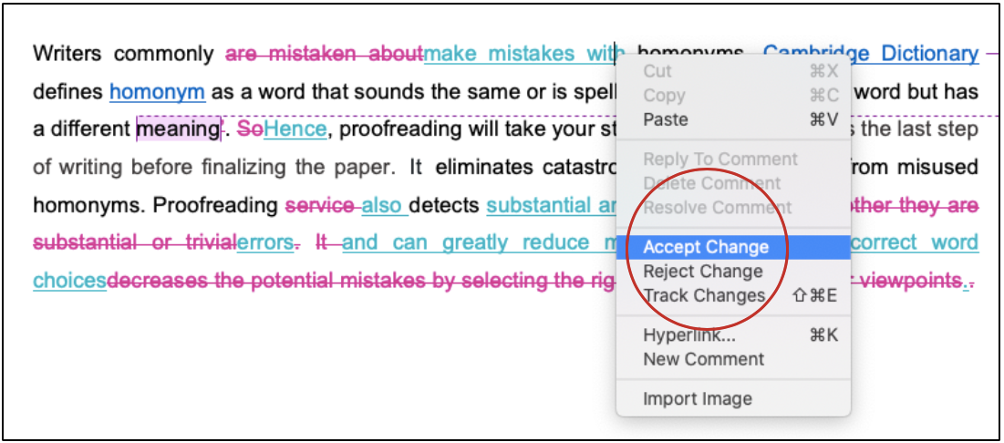
English formatting service
You can also avail of our assistance if you are looking for editors who can format your manuscript, or just check on the particular styles for the formatting task as per the guidelines provided to you, e.g., APA, MLA, or Chicago/Turabian styles. Best Edit & Proof editors and proofreaders provide all sorts of academic writing help, including editing and proofreading services, using our user-friendly website, and a streamlined ordering process.

Get a free quote for editing and proofreading now!
Visit our order page if you want our subject-area editors or language experts to work on your manuscript to improve its tone and style and give it a perfect academic tone and style through proper editing and proofreading. The process of submitting a paper is very easy and quick. Click here to find out how it works.
Our pricing is based on the type of service you avail of here, be it editing or proofreading. We charge on the basis of the word count of your manuscript that you submit for editing and proofreading and the turnaround time it takes to get it done. If you want to get an instant price quote for your project, copy and paste your document or enter your word count into our pricing calculator.

24/7 customer support | Live support
Contact us to get support with academic editing and proofreading. We have a 24/7 active live chat mode to offer you direct support along with qualified editors to refine and furbish your manuscript.

Stay tuned for updated information about editing and proofreading services!
Follow us on Twitter, LinkedIn, Facebook, Instagram, and Medium .
For more posts, click here.
- Editing & Proofreading
- Citation Styles
- Grammar Rules
- Academic Writing
- Proofreading
- Microsoft Tools
- Academic Publishing
- Dissertation & Thesis
- Researching
- Job & Research Application
Similar Posts
How to Determine Variability in a Dataset
How to Determine Central Tendency
How to Specify Study Variables in Research Papers?
Population vs Sample | Sampling Methods for a Dissertation
7 Issues to Avoid That may Dent the Quality of Thesis Writing
How to Ensure the Quality of Academic Writing in a Thesis and Dissertation?
How to Define Population and Sample in a Dissertation?
Recent Posts
ANOVA vs MANOVA: Which Method to Use in Dissertations?
They Also Read

One of the main things that any editor or proofreader looks out for while editing a piece of text is punctuation marks. The reason is simple — they can alter the meaning of your text if you do not use them correctly. It becomes even more prominent when you are writing an academic paper. In academic writing, an author may be easily misunderstood when ambiguous sentences are used. Punctuation marks mainly serve the purpose to disambiguate sentences. While literary or other types of writing will have a certain degree of freedom for using punctuation marks, academic work needs to be precise and correct. This article will cover the importance of punctuation marks in academic writing.

Writing research articles might be tough. However, publishing articles in peer-reviewed journals is even tougher. Writing research articles for academic journals is as difficult as it is competitive. It’s not just about writing a research paper extensively. Arranging and condensing the content to appeal to the reviewers’ interests is also crucial. Skip on it, and there are high chances no editor will pay your article any attention, let alone forward it for publication. In this guide, you will learn how to heighten the probability of publishing your articles.

According to the Office of Research Integrity (ORI), plagiarism is considered “both the theft or misappropriation of intellectual property and the substantial unattributed textual copying of another's work.” Since the consequences of plagiarism can be fatal, this article seeks to discuss 5 practical ways to avoid plagiarism in academic essays.

Essays are a principal component of academic writing. Scholars and students need to write a plethora of essays on a recurring basis as a core requirement of their research or curricula. Depending on the writing purpose, these essays can be persuasive, narrative, descriptive, or expository. This article expounds on expository essays and suggests some helpful steps to write an expository essay.

When you deal with experiments, you investigate the causal relationship between variables. What you fundamentally do is manipulate one or more than one independent variable (x) to determine their effect on dependent variables (y).
Have a language expert improve your writing
Run a free plagiarism check in 10 minutes, generate accurate citations for free.
- Knowledge Base
- Research paper
Writing a Research Paper Introduction | Step-by-Step Guide
Published on September 24, 2022 by Jack Caulfield . Revised on March 27, 2023.
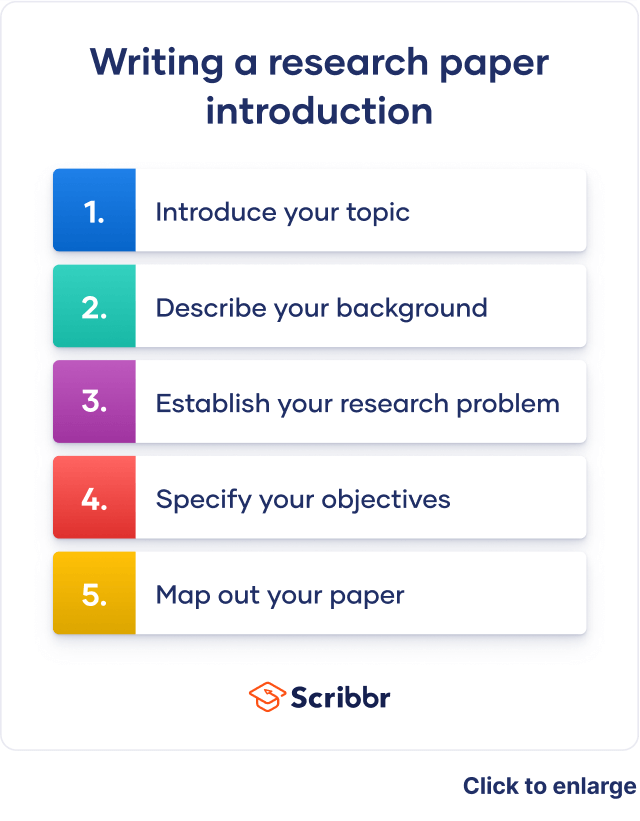
The introduction to a research paper is where you set up your topic and approach for the reader. It has several key goals:
- Present your topic and get the reader interested
- Provide background or summarize existing research
- Position your own approach
- Detail your specific research problem and problem statement
- Give an overview of the paper’s structure
The introduction looks slightly different depending on whether your paper presents the results of original empirical research or constructs an argument by engaging with a variety of sources.
Instantly correct all language mistakes in your text
Upload your document to correct all your mistakes in minutes

Table of contents
Step 1: introduce your topic, step 2: describe the background, step 3: establish your research problem, step 4: specify your objective(s), step 5: map out your paper, research paper introduction examples, frequently asked questions about the research paper introduction.
The first job of the introduction is to tell the reader what your topic is and why it’s interesting or important. This is generally accomplished with a strong opening hook.
The hook is a striking opening sentence that clearly conveys the relevance of your topic. Think of an interesting fact or statistic, a strong statement, a question, or a brief anecdote that will get the reader wondering about your topic.
For example, the following could be an effective hook for an argumentative paper about the environmental impact of cattle farming:
A more empirical paper investigating the relationship of Instagram use with body image issues in adolescent girls might use the following hook:
Don’t feel that your hook necessarily has to be deeply impressive or creative. Clarity and relevance are still more important than catchiness. The key thing is to guide the reader into your topic and situate your ideas.
Don't submit your assignments before you do this
The academic proofreading tool has been trained on 1000s of academic texts. Making it the most accurate and reliable proofreading tool for students. Free citation check included.

Try for free
This part of the introduction differs depending on what approach your paper is taking.
In a more argumentative paper, you’ll explore some general background here. In a more empirical paper, this is the place to review previous research and establish how yours fits in.
Argumentative paper: Background information
After you’ve caught your reader’s attention, specify a bit more, providing context and narrowing down your topic.
Provide only the most relevant background information. The introduction isn’t the place to get too in-depth; if more background is essential to your paper, it can appear in the body .
Empirical paper: Describing previous research
For a paper describing original research, you’ll instead provide an overview of the most relevant research that has already been conducted. This is a sort of miniature literature review —a sketch of the current state of research into your topic, boiled down to a few sentences.
This should be informed by genuine engagement with the literature. Your search can be less extensive than in a full literature review, but a clear sense of the relevant research is crucial to inform your own work.
Begin by establishing the kinds of research that have been done, and end with limitations or gaps in the research that you intend to respond to.
The next step is to clarify how your own research fits in and what problem it addresses.
Argumentative paper: Emphasize importance
In an argumentative research paper, you can simply state the problem you intend to discuss, and what is original or important about your argument.
Empirical paper: Relate to the literature
In an empirical research paper, try to lead into the problem on the basis of your discussion of the literature. Think in terms of these questions:
- What research gap is your work intended to fill?
- What limitations in previous work does it address?
- What contribution to knowledge does it make?
You can make the connection between your problem and the existing research using phrases like the following.
| Although has been studied in detail, insufficient attention has been paid to . | You will address a previously overlooked aspect of your topic. |
| The implications of study deserve to be explored further. | You will build on something suggested by a previous study, exploring it in greater depth. |
| It is generally assumed that . However, this paper suggests that … | You will depart from the consensus on your topic, establishing a new position. |
Now you’ll get into the specifics of what you intend to find out or express in your research paper.
The way you frame your research objectives varies. An argumentative paper presents a thesis statement, while an empirical paper generally poses a research question (sometimes with a hypothesis as to the answer).
Argumentative paper: Thesis statement
The thesis statement expresses the position that the rest of the paper will present evidence and arguments for. It can be presented in one or two sentences, and should state your position clearly and directly, without providing specific arguments for it at this point.
Empirical paper: Research question and hypothesis
The research question is the question you want to answer in an empirical research paper.
Present your research question clearly and directly, with a minimum of discussion at this point. The rest of the paper will be taken up with discussing and investigating this question; here you just need to express it.
A research question can be framed either directly or indirectly.
- This study set out to answer the following question: What effects does daily use of Instagram have on the prevalence of body image issues among adolescent girls?
- We investigated the effects of daily Instagram use on the prevalence of body image issues among adolescent girls.
If your research involved testing hypotheses , these should be stated along with your research question. They are usually presented in the past tense, since the hypothesis will already have been tested by the time you are writing up your paper.
For example, the following hypothesis might respond to the research question above:
The final part of the introduction is often dedicated to a brief overview of the rest of the paper.
In a paper structured using the standard scientific “introduction, methods, results, discussion” format, this isn’t always necessary. But if your paper is structured in a less predictable way, it’s important to describe the shape of it for the reader.
If included, the overview should be concise, direct, and written in the present tense.
- This paper will first discuss several examples of survey-based research into adolescent social media use, then will go on to …
- This paper first discusses several examples of survey-based research into adolescent social media use, then goes on to …
Full examples of research paper introductions are shown in the tabs below: one for an argumentative paper, the other for an empirical paper.
- Argumentative paper
- Empirical paper
Are cows responsible for climate change? A recent study (RIVM, 2019) shows that cattle farmers account for two thirds of agricultural nitrogen emissions in the Netherlands. These emissions result from nitrogen in manure, which can degrade into ammonia and enter the atmosphere. The study’s calculations show that agriculture is the main source of nitrogen pollution, accounting for 46% of the country’s total emissions. By comparison, road traffic and households are responsible for 6.1% each, the industrial sector for 1%. While efforts are being made to mitigate these emissions, policymakers are reluctant to reckon with the scale of the problem. The approach presented here is a radical one, but commensurate with the issue. This paper argues that the Dutch government must stimulate and subsidize livestock farmers, especially cattle farmers, to transition to sustainable vegetable farming. It first establishes the inadequacy of current mitigation measures, then discusses the various advantages of the results proposed, and finally addresses potential objections to the plan on economic grounds.
The rise of social media has been accompanied by a sharp increase in the prevalence of body image issues among women and girls. This correlation has received significant academic attention: Various empirical studies have been conducted into Facebook usage among adolescent girls (Tiggermann & Slater, 2013; Meier & Gray, 2014). These studies have consistently found that the visual and interactive aspects of the platform have the greatest influence on body image issues. Despite this, highly visual social media (HVSM) such as Instagram have yet to be robustly researched. This paper sets out to address this research gap. We investigated the effects of daily Instagram use on the prevalence of body image issues among adolescent girls. It was hypothesized that daily Instagram use would be associated with an increase in body image concerns and a decrease in self-esteem ratings.
The introduction of a research paper includes several key elements:
- A hook to catch the reader’s interest
- Relevant background on the topic
- Details of your research problem
and your problem statement
- A thesis statement or research question
- Sometimes an overview of the paper
Don’t feel that you have to write the introduction first. The introduction is often one of the last parts of the research paper you’ll write, along with the conclusion.
This is because it can be easier to introduce your paper once you’ve already written the body ; you may not have the clearest idea of your arguments until you’ve written them, and things can change during the writing process .
The way you present your research problem in your introduction varies depending on the nature of your research paper . A research paper that presents a sustained argument will usually encapsulate this argument in a thesis statement .
A research paper designed to present the results of empirical research tends to present a research question that it seeks to answer. It may also include a hypothesis —a prediction that will be confirmed or disproved by your research.
Cite this Scribbr article
If you want to cite this source, you can copy and paste the citation or click the “Cite this Scribbr article” button to automatically add the citation to our free Citation Generator.
Caulfield, J. (2023, March 27). Writing a Research Paper Introduction | Step-by-Step Guide. Scribbr. Retrieved July 11, 2024, from https://www.scribbr.com/research-paper/research-paper-introduction/
Is this article helpful?

Jack Caulfield
Other students also liked, writing strong research questions | criteria & examples, writing a research paper conclusion | step-by-step guide, research paper format | apa, mla, & chicago templates, get unlimited documents corrected.
✔ Free APA citation check included ✔ Unlimited document corrections ✔ Specialized in correcting academic texts
Educational resources and simple solutions for your research journey

What is the Difference Between Research Papers and Review Papers?
Researchers often have to write different types of articles, from review papers to review papers and more, each with its own purpose and structure. This makes it critical for students and researchers to understand the nuances of good writing and develop the skills required to write various kinds of academic text. With so many different types of academic writing to pursue – scholarly articles, commentaries, book reviews, case reports, clinical study reports – it is common for students and early career researchers to get confused. So in this article, we will explain what is a review paper and what is a research paper, while summarizing the similarities and difference between review papers and research papers.
Table of Contents
What is a Review Paper ?
A review paper offers an overview of previously published work and does not contain any new research findings. It evaluates and summarizes information or knowledge that is already available in various published formats like journals, books, or other publications, all of which is referred to as secondary literature. Well-written review papers play a crucial role in helping students and researchers understand existing knowledge in a specific field or a research topic they are interested in. By providing a comprehensive overview of previous studies, methodologies, findings, and trends, they help researchers identify gaps in a specific field of study opening up new avenues for future research.
What is a Research Paper ?
A research paper is based on original research and primary sources of data. Unlike review papers, researchers writing research papers need to report new findings derived from empirical research or experimentation. It requires the author to draw inferences or make assumptions based on experiments, surveys, interviews, or questionnaires employed to collect and analyze data. Research papers also typically follow the recommended IMRAD format, which includes an abstract, introduction, methodology, results, discussion, and conclusion. Through research papers, authors address a specific research question or hypothesis with the aim of contributing novel insights to the field.
Similarities between research papers and review papers
Research papers and review papers share several similarities, which makes it understandable that it is this pair of academic documents that are often most confused.
- Research papers and review papers are written by scholars and intended for an academic audience; they’re written with the aim of contributing to the existing body of knowledge in a particular field and can be published in peer reviewed journals.
- Both research papers and review papers require a comprehensive understanding of all the latest, relevant literature on a specific topic. This means authors must conduct a thorough review of existing studies, theories, and methodologies in their own subject and related areas to inform their own research or analysis.
- Research papers and review papers both adhere to specific formatting and citation styles dictated by the target journal. This ensures consistency and allows readers to easily locate and reference the sources cited in the papers.
These similarities highlight the rigorous, scholarly nature of both research papers and review papers, which requires both research integrity and a commitment to further knowledge in a field. However, these two types of academic writing are more different than one would think.
Differences between research papers and review papers
Though often used interchangeably to refer to academic content, research papers and review papers are quite different. They have different purposes, specific structure and writing styles, and citation formats given that they aim to communicate different kinds of information. Here are four key differences between research papers and review papers:
- Purpose: Review papers evaluate existing research, identify trends, and discuss the current state of knowledge on a specific topic; they are based on the study of previously published literature. On the other hand, research paperscontain original research work undertaken by the author, who is required to contribute new knowledge to the research field.
- Structure: Research papers typically follow a structured format, including key sections like the introduction, methods, results, discussion, and conclusion. Meanwhile, review papers may have a more flexible structure, allowing authors to organize the content based on thematic or chronological approaches. However, they generally include an introduction, main body discussing various aspects of the topic, and a conclusion.
- Methodology: Research papers involve the collection of data, experimentation, or analysis of existing data to answer specific research questions. However, review papers do not involve original data collection; instead, they extensively analyze and summarize existing studies, often using systematic literature review methods.
- Citation style: Research papers rely on primary sources to support and justify their own findings, emphasizing recent and relevant research. Review papers incorporate a wide range of primary and secondary sources to present a comprehensive overview of the topic and support the evaluation and synthesis of existing literature.
In summary, it’s important to understand the key differences between research papers and review papers. By mastering the art of writing both research papers and review papers, students and researchers can make more meaningful contributions to their chosen disciplines. All the best!
R Discovery is a literature search and research reading platform that accelerates your research discovery journey by keeping you updated on the latest, most relevant scholarly content. With 250M+ research articles sourced from trusted aggregators like CrossRef, Unpaywall, PubMed, PubMed Central, Open Alex and top publishing houses like Springer Nature, JAMA, IOP, Taylor & Francis, NEJM, BMJ, Karger, SAGE, Emerald Publishing and more, R Discovery puts a world of research at your fingertips.
Try R Discovery Prime FREE for 1 week or upgrade at just US$72 a year to access premium features that let you listen to research on the go, read in your language, collaborate with peers, auto sync with reference managers, and much more. Choose a simpler, smarter way to find and read research – Download the app and start your free 7-day trial today !
Related Posts

Simple Random Sampling: Definition, Methods, and Examples

What is a Case Study in Research? Definition, Methods, and Examples

- Customer Reviews
- Extended Essays
- IB Internal Assessment
- Theory of Knowledge
- Literature Review
- Dissertations
- Essay Writing
- Research Writing
- Assignment Help
- Capstone Projects
- College Application
- Online Class
Term Paper vs Research Paper: What’s the Difference?
by Antony W
June 27, 2024

It’s easy to confuse term and research paper for the same thing because they have a number of elements that easily overlap. However, there are features that set them apart. In this term paper versus research paper guide, we look at the similarities and differences so you never confuse the two assignments for the same thing ever again.
What is a Research Paper?
We can define a research paper as an academic piece of assignment that requires a student to investigate subject methodically and theoretically and present their findings on the topic. Notably, research papers focus on analyzing issues (or problems) within a specific course.
In other words, when your professor asks you to write a research paper, they expect you to study a specific problem. More often than not, the problem under investigation is one that either has had questionable results in the past or hasn’t had an extensive coverage in the already existing studies.
What is a Term Paper?
A term paper , on the other hand, is an assignment issued to test student’s knowledge on a given subject or themes after a given duration of studies.
The type of assignment you write in the case of a term paper will vary depending on your instructor’s preference. They may ask you to write an essay , complete a test, or do some school work linked to the theme you’ve explored in a classroom setting.
You will write a term paper near the end of a class, and what you score for the assignment will count in that specific subject’s final grades.
Term Paper vs Research Paper: What Are The Key Differences?
Many elements easily overlap between a term paper and a research paper, but that doesn’t mean they’re 100% similar to one another. You need to learn the differences so that you never confuse between these two types of assignments.
The table below indicates the apparent differences between a term paper and a research paper.
| Assigned in the middle or at the end of a given study or term | Instructors assign this at the beginning of a term | |
| You’ll need to write it using an outline for a term paper | Takes the format of an academic work also known as the research paper outline | |
| Has a shorter deadline, usually between a day to a week | A longer assignment that takes weeks or even months to complete | |
| Written to examine a student’s level of understanding on a topic or theme already discussed in the classroom. | The assignment focuses on solving a particular problem. | |
| It supports a | Often written to support a | |
| Term paper influence a student’s overall grade | It doesn’t always have an influence on a student’s final grades. | |
| A term paper can be as short as one page | The length vary and it’s often not less than 5 pages |
These differences may not be clear at a first glance, so it often helps to do a lookup when in doubt.
Let’s take this even further by explaining these similarities and differences in more details so that you have more insights on the same.
Term Paper Vs Research Paper: Similarities
Topic selection.
The criterion for topic selection is the same for term and research paper. Your instructor can either assign you a topic to work on or ask you to choose one yourself, with the option to identify your own topic being the most common option.
If your instructor has given you the freedom to choose a topic yourself, make sure the subject you pick relates to the discussion had and study material issued in class.
Requirements
Both term and research paper need to adhere to academic formatting and referencing style. You’ll find these requirements clearly indicated in the assignments’ instructions. If your instructor doesn’t give you a formatting and referencing style to use, stick to MLA or APA.
A Term Paper Can Be a Research Assignment
We understand that this can bring a lot of confusion, but it’s important to note that a term paper can also be a research assignment. If your instructor has asked you to investigate a topic based on existing evidence by using a methodological approach in a 10-page term paper, they’re most likely asking you to write a research assignment.
Term Paper vs Research Paper: Understanding the Differences
Structural differences.
One clear difference between term paper and a research paper is the components that go into the assignment.
A research paper should have an introduction, literature review, methodology, results (or findings), discussion (or analysis), conclusion, and reflection (optional).
You won’t have a question to explore in a term paper and it doesn’t include a hypothesis either. The assignment doesn’t require appendices, but your instructor may ask you to include an annotated bibliography in the term paper.
Differences in Goals
The goal of a research paper assignment is to solve a specific problem. Often, you’ll have to study existing literature to find gaps or contradictions and then suggest solutions based on your findings.
A term paper, on the other hand, seeks to test your knowledge on a topic. The emphasis is on testing your understanding of a given subject or theme discussed in classroom.
Differences in Length
A term paper is longer than a typical essay, but it won’t be as voluminous as a research paper. In fact, term papers hardly ever go beyond 20 pages, and the shortest ones that Help for Assessment writers have worked on are as short as 1,000 words.
A research paper is longer than a term paper, with the number of pages ranging between 10 and 40 give or take, if not more at least.
Term papers tend to be shorter because, in part, they’re a bridge between essays and research works, and mostly because they don’t presuppose serious data collection and detailed analysis.
Differences in Deadlines and Grades
The word term, in respect to academic assignments, refers to a finite period within which a task should be complete. Therefore, in essence, a term paper is an assessment given at the very end of a course, and it often determines a student’s final grades.
A research paper may or may not influence your final grade depending on the instructions given – or your professor’s preference.
About the author
Antony W is a professional writer and coach at Help for Assessment. He spends countless hours every day researching and writing great content filled with expert advice on how to write engaging essays, research papers, and assignments.
- Have your assignments done by seasoned writers. 24/7
- Contact us:
- +1 (213) 221-0069
- [email protected]

Term Paper vs Research Paper vs an Essay: Differences & Tips

a Term Paper, a Research Paper, and an Essay
Depending on the academic level in which a student is in, they will be tasked with writing different types of academic writings to demonstrate their proficiency as learners.
Academic writings come in the form of term papers, research papers, and essays. As a learner, you will be tasked with writing exercises. You should be aware of their differences so that you can deliver what is required.

People Also Read: How Old Should References be: Best Age of Sources in writing
Difference between a Term Paper, a Research Paper, and an Essay
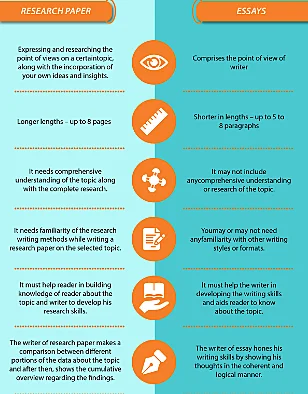
Now, what is the difference between the three major forms of academic writing? Well, first of all, a term paper can be regarded as written work or academic composition.
It is meant to indicate a student’s progress during school term/semester.
What this means is that a term paper covers the entire course, making it a comparatively large project.
Students are required to write term papers throughout the semester. The reason is to ensure that they cover all the concepts presented during the term.
In addition to ensuring that they are not overwhelmed by too much work at the end of the semester.
A research paper is an academic piece of work written by students concerning a particular topic. It is not like a term paper that may cover more things since it covers a term’s work.
The instructor provides a particular topic in which students are required to apply their research and writing skills. They come up with a complete paper in response to the topic.
Essays can be regarded as interpretive or analytic literary compositions. Alongside they are written by students to test their knowledge of simple concepts. Essays are shorter than research papers and term papers because they are meant to interpret or analyze particular topics.
In simple, a research paper is an academic writing that tests a student’s ability to apply knowledge learned in class or a course. A term paper on the contrary is a written assignment to test a learner’s knowledge of a specific topic or chapter.
On the other hand, an essay is an interpretive or analytic literary composition where a student makes an argument about a topic.
People Also Read: How to Write a Narrative Essay: a stepwise guide and length
Comprehensive Definitions of the Three
1. term paper.
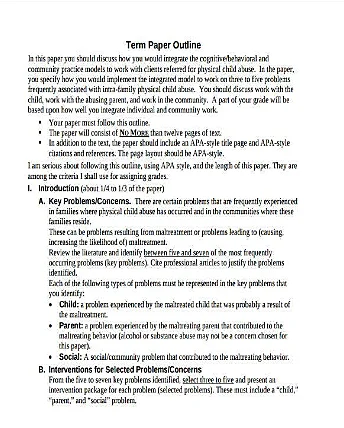
A term paper can be regarded as written work or academic composition that is meant to indicate a student’s progress during school term/semester.
A term paper covers the entire course, making it a comparatively large project. Students are required to write term papers throughout the semester.
This is to ensure that they cover all the concepts presented during the term. Besides ensure that they are not overwhelmed by too much work at the end of the semester.
For example, let us imagine that you are studying environmental science in college. You have started the semester or term by defining the key concepts.
Finally, you are gradually getting into more details as the semester goes on.
To ensure that you understand the concepts of environmental science and give the instructor an opportunity to determine your progress as a learner, they will give you a term paper to complete by the end of the semester.
You should note that it should be completed by the end of the semester. Not at the end of the semester like other papers. Term papers are a continuous writing process that students should do throughout the semester.
In most cases, instructors will notify their students at the beginning of the semester that they are required to complete a term paper by the end of the semester.
This allows students to start the writing process early enough to avoid being overwhelmed at the end of the semester.
2. Research paper
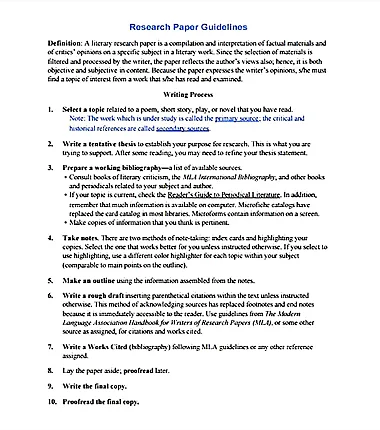
A research paper, can be defined as an academic piece of work written by students concerning a particular topic.
It is not like a term paper that may cover more things since it covers for a term’s work.
The instructor provides a particular topic in which students are required to apply their research and writing skills to come up with a complete paper in response to the topic.
In a research paper, students will also conduct research into specific questions that have been posted by hypotheses and/or scientific theories.
When instructors give students research papers as assignments, it means that they are trying to gauge the research capabilities of their students concerning a specific topic within a particular discipline.
Research papers help students become better scholars and field researchers later in life.
Research papers are usually completed at the end of the semester and they are comparatively shorter in length compared to term papers – at least in most cases.
As we have noted, term papers are meant to show a student’s academic process during the term/semester.
However, research papers are meant to tackle specific research issues or topics that have been derived from the course.
What this means is that as the course continues, the research questions or topics will arise. As such giving students an opportunity to tackle them through their research papers.
Therefore, research papers are usually given to students towards the end or at the middle of the semester to give students enough time to come up with their papers.
Research papers take a different structure of writing. Check out our comprehensive guide on how to write a research paper and learn more.
But in brief, there is an introduction, background, literature review, methodology, findings and discussions, and finally a conclusion. This is the major defining characteristic of research papers.
3. An Essay
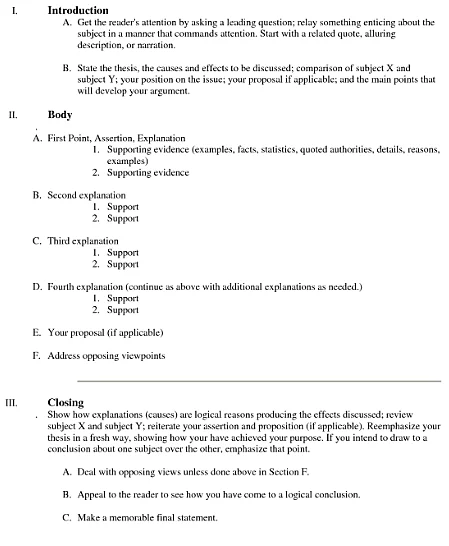
On the other hand, the essay is an interpretive or an analytic literary composition written to test students’ knowledge of simple concepts.
Essays are shorter than research papers and term papers because they are meant to interpret or analyze particular topics.
Essays can be written by students in high school. This is because the steps of writing an essay are pretty simple.
They can also be written by college-level students. However, it is rare for post-graduate students to write essays.
Essays take a simpler structure or format compared to research papers and term papers. Essays have an introduction, body, and a conclusion.
It should be noted that there are times when research papers are longer than term papers depending on the academic requirements and the content presented in the papers.
At the same time, depending on the academic scheduling of the institution, students can be required to start writing their papers at any point during the term/semester.
As such, be keen with the instructions provided by your professors or teachers when writing essays, term papers, or research papers.
Similarities between a Term Paper and a Research Paper
The first similarity is that both term papers and research papers are longer pieces of academic writings that are written by college-level students concerning a particular subject matter.
What this means is that they are formal academic works that gauge the student’s understanding of the course concepts. These concepts go into the writing as subtopics in a research paper , which makes the difference.
The second similarity between a term paper and a research paper is that they both take the same writing or academic format. The basic format is the introduction, the background, literature review, methodology, findings and discussions, and finally conclusion.
However, it can have a table of contents, abstracts, acronyms, acknowledgments, and so on. Though there might be a slight difference, both papers must have both in-text citations and a reference page at the end of the paper.
People Also Read: Honors College Essay: Tips, Prompt examples and How to Write
Similarities between a Term Paper and an Essay
There are some similarities between a term paper and an essay. The first similarity is that both analyze or interpret particular course concepts.
While an essay is a literary composition that takes a narrow scope in terms of the content to be covered, a term paper will also take the form of literary composition. In addition, it covers a wider scope of concepts within the course. However, both are literary compositions.
The second similarity between a term paper and an essay is that they allow students to be more autonomous when it comes to what they are discussing.
Students are given an opportunity to write their perceptions concerning the course concepts because they are used to gauge the proficiency of the student in terms of how much they have understood the course.
That being said, hope that this article has been worth your time. All the best!

When not handling complex essays and academic writing tasks, Josh is busy advising students on how to pass assignments. In spare time, he loves playing football or walking with his dog around the park.
Related posts

Titles for Essay about Yourself
Good Titles for Essays about yourself: 31 Personal Essay Topics

How to Write a Diagnostic Essay
How to Write a Diagnostic Essay: Meaning and Topics Example

How Scantron Detects Cheating
Scantron Cheating: How it Detects Cheating and Tricks Students Use
Journal Article vs Research Paper: Difference and Comparison
Key Takeaways A journal article is a shorter scholarly writing published in a specific academic journal. A research paper is a more extended, comprehensive academic writing presenting original research. Journal articles are more focused and present specific findings, while research papers are broader and present a more comprehensive study.
Journal Article vs Research Paper
Comparison table.
| Feature | Journal Article | Research Paper |
|---|---|---|
| A scholarly publication presenting original research findings, published in a peer-reviewed academic journal. | A broader term encompassing various forms of written work presenting research findings, analysis, or arguments. | |
| Primarily targeted towards researchers and scholars in a specific field. | Can have varying audiences depending on the purpose and context, including researchers, students, professionals, or the general public. | |
| Typically shorter, ranging from 5,000 to 10,000 words. | Can vary greatly in length, from a few pages for conference papers to book-length for dissertations. | |
| Focused on presenting original research conducted by the author(s), including methodology, results, discussion, and conclusions. | Can present original research, analyze existing research, offer critical evaluations, or propose new ideas and arguments. | |
| Always undergoes a rigorous peer-review process before publication in a reputable journal. | May or may not undergo peer review, depending on the context and purpose of the paper. | |
| Published in a peer-reviewed academic journal following specific format and style guidelines. | Can be published in various formats and venues, including academic journals, conference proceedings, books, or online platforms. |
What is Journal Article?
Content and structure, similar reads, peer review process:, what is research paper, 1. content and structure, characteristics and scope, main differences between journal article and research paper.
Last Updated : 05 March, 2024
Share this post!
21 thoughts on “journal article vs research paper: difference and comparison”.
The characteristics of a journal article outlined in the article shed light on the structured nature of these scholarly publications. It’s important to understand the components that make up a journal article to effectively communicate research findings.
Agreed, knowing the key components of a journal article is essential for researchers aiming to publish their work in reputable academic journals.
Absolutely, the detailed breakdown of the characteristics of a journal article provides valuable insights for aspiring authors.
This article provides a clear and concise comparison between journal articles and research papers. It’s informative and well-structured. I appreciate the detailed explanation of the characteristics of each type of publication.
I agree, the article provides a comprehensive overview of the differences between journal articles and research papers. It’s a valuable resource for researchers and academics.
The characteristics of a journal article and a research paper are clearly delineated in the article, providing an insightful comparison between the two types of scholarly publications.
Absolutely, the article offers a comprehensive comparison that highlights the unique features of journal articles and research papers.
The article effectively differentiates between journal articles and research papers, offering a comprehensive understanding of the distinct characteristics and purposes of each type of scholarly publication.
I concur, the article serves as an illuminating guide for researchers and scholars navigating the intricacies of academic writing and publication.
The article offers a thorough understanding of the significance of journal articles and research papers in the academic and professional spheres. It serves as a valuable resource for individuals engaged in scholarly writing and research.
I find the comparison table provided in the article particularly helpful. It offers a quick reference for distinguishing between journal articles and research papers based on publication outlet, content, target audience, peer review, length, structure, emphasis, and impact.
Yes, the comparison table is a useful tool for researchers to understand the key differences between journal articles and research papers at a glance.
The comparison table and detailed explanations in the article provide a nuanced understanding of the unique features of journal articles and research papers, making it a valuable resource for the academic community.
Absolutely, the article offers a comprehensive analysis that elucidates the differences and similarities between journal articles and research papers.
The distinction between journal articles and research papers is crucial for academic writing. This article does a great job of highlighting those differences and their respective characteristics.
Absolutely, understanding the nuances between these two types of publications is essential for academic and scholarly work. This article does an excellent job of breaking it down.
The structure of a research paper outlined in the article serves as a helpful guide for researchers looking to compose comprehensive and well-organized scholarly documents. It offers a clear framework for presenting original research findings.
I found the breakdown of the structure of a research paper to be particularly enlightening. It offers a roadmap for researchers to follow when crafting their academic work.
Yes, understanding the structure of a research paper is essential for effectively communicating the results of a study. This article provides a detailed overview of what to include in a research paper.
The detailed explanation of the structure and content of a journal article and a research paper is beneficial for researchers seeking to refine their academic writing skills and publish their work.
Indeed, the article provides valuable insights into the components and organization of journal articles and research papers, aiding researchers in producing high-quality scholarly publications.
Leave a Comment Cancel reply
Research paper vs white paper: how are they different?
- September 14, 2022
Research paper vs white paper is a conundrum white paper writers frequently encounter. Most people had to write research papers when they were in high school and college, and many people work in industries where researchers and scientists publish research papers to inform colleagues and industries of what they’ve learned. So when they hear someone mentioning white papers, they can’t be faulted for assuming they’re the same thing. (Originally, a white paper was an official government report.)
What are research papers?
Research papers are formal documents or scientific articles exploring a particular subject in detail, and supporting the writer’s contention or arguments by including evidence from outside experts and other sources. Most research papers follow standardized structures, often beginning with some type of a thesis statement, presenting a series of arguments or sources in support of that statement, and ending in a statement about whether the thesis was successfully proven.
For students, academic papers are usually assigned to determine their mastery of a topic or their ability to write in traditional academic style. Professionals use peer reviewed research papers for a different reason. They want to share an idea they had and whether it proved to be possible, useful, or even valuable.
Scientific papers
Peer reviewed research papers are particularly important in the sciences. For example, many medical advances are first documented by the doctors or other scientists who discovered and tested them. An oncologist may stumble upon a combination of treatments that’s particular effective on a difficult-to-treat cancer. The doctor tests his idea following standard procedures and protocols and discovers it’s effective 86 percent of the time, so they write a research paper explaining the treatment and recommending the next steps for researchers.
The scientific research paper process is designed to explore all existing knowledge to create new ideas and discoveries, then document everything to help the scientist who pushes the frontiers of knowledge even further.
Publishing research papers
Recognition of the value of what a particular research paper analyzes often comes in the form of being published in an peer reviewed academic journal. Generally, an academic journal uses a peer review process in which several professionals read papers that have been submitted before publishing research papers. They ensure a logical framework is used and also make sure any statistics and other information used reflect peer reviewed research standards.
What is a white paper?
White papers are documents that explore complex issues to educate audiences. When used in a marketing or policymaking context, a white paper provides enough facts and arguments to convince people that your product, service, or strategy offers the best solution for the situation, educating them about the issue and making a case for your position or advice. Potential customers search for the information found in white papers.
White papers offer an excellent way to explain what makes your solution better than competing alternatives. You can use them to provide a technical discussion or summarize key information about a particular issue or problem to help the reader develop a stronger understanding. You describe common problems current and prospective customers face and provide detailed explanations as to how your approach provides the best solution.
Unlike ads and brochures, white papers are generally not promotional, without a strong sales pitch. Because the audiences that white papers target — such as engineers, CFOs, and CEOs — tend to distrust materials that appear to be more “salesy” than informative, most white papers are simply set up to look like trade magazine articles with fewer pictures.
So research paper vs white paper?
As in how they are different? First, they have two very different purposes. The purpose of a research paper is, for students, to prove mastery of a subject. For professionals, it’s to advance knowledge by sharing discoveries. A white paper, on the other sheet, is a tool to share information and influence decision-making.
Research papers explore all existing knowledge and can never have enough of it. White papers focus on a handful of points. Just enough knowledge to help someone make the right decision and nothing more. Research papers expand the mind, white papers attempt to narrow it.
Typically, research papers are written in the stiff, formal style that’s used in the academic world. You’ll have no trouble recognizing it from your memories of 8th grade English or your college composition class (or whatever fancy term your college came up with because they didn’t think you were smart enough to realize it was a composition class). Remember that long list of rules Mrs. Handsdown recited and all the red ink on your graded papers? Now when you write an email, you sometimes worry that she’s somehow going to see it, and you’ll feel her hovering over your shoulder.
The most effective white papers are written in a friendly, conversational way . Mrs. Handsdown would be very disappointed in you, but your boss will think you’ve become a genius. How so? It starts with the voice and tone of the written word. So you’re already a little confused. How could the written word make sound? Well, I didn’t say that. I said the voice and tone and not sound.
Literacy — the ability to read — is a relatively recent development in the evolution of our species. From the time we were magically created, hatched, or (whatever your image of life celebrates), until mere centuries ago, we had no way to communicate in writing. So we spoke. More important, we listened. Listening could keep us alive. Gradually, we learned the value of sharing what the old had learned from life so the young could take their places.
That was a long time ago, but you know what’s funny? Much of our mental wiring is from that era. Our brains do a great job of collecting and managing information. Was that the doorbell? Did a bird hit the window? Is that noise coming from beast of sharpest teeth? Your brain reacts to all three events the same way. It triggers hormones to kick up your energy and sharpen your senses so you don’t miss a thing. Thanks to some mutual ancestor who managed to stay a step ahead of a sabertoothed tiger, sound gets our immediate interest.
So we’re conditioned to listen for and pay attention to voices. Think of how many of the best times you can remember were spent in conversation with friends or family. Think of the number of interactions you have with other people on a given day, and what percentage include at least some conversation, even if it’s just “mornin’.”
As children, we grasp reading by connecting words with their associated sounds. And because the spoken word is so comfortable for us, we begin to recognize it in what we read. As we read a paragraph, we “hear” a voice in our heads. The voice is how we think the author or the character sounds. Not sure what I’m saying? Have you ever read a book and then seen a movie made from the book? A character speaks and you think, “Hey! He doesn’t sound like that!” You heard his “voice” when you read the book.
Based on the voices they hear, people draw very important conclusions about you. They decide whether you can be trusted. How you will treat them. Whether you’re genuinely friendly or just acting nice. You can control that impression, because you can control that voice.
Sometimes, presenting the right voice means ignoring some of those grammar rules Mrs. Handsdown drummed into your head. Why? Effective copy talks to people, and people don’t speak with textbook grammar. We start sentences with conjunctions, we end them with prepositions. We even use fragments. (That doesn’t mean grammar is unimportant. Forgetting basic agreement or structure can make you sound uneducated. Don’t be afraid to break rules – but do it selectively and with reason.)
By writing a white paper in a friendly, conversational way, you’ll tap into our desire to listen to voices and do a better job of capturing the reader’s full attention.
Is grammar for research and white papers different?
As I mentioned, research papers are usually written in that formal, stuffy academic style taught in high school English and college Composition classes and often used by technical writers.
But writing white papers isn’t about trying to please strict English teachers or jaded Composition instructors. Writing white papers is about selling. Telling. Convincing. Entertaining. Emphasizing. Doing that effectively demands copy that’s individual and personal. In fact, the more copy sounds like conversation, the more effective it tends to be.
That doesn’t mean you should ignore basic rules of grammar and syntax. The degree of grammatical correctness should reflect the situation and the audience. If the primary audience for your white paper is a group of university professors, you’ll want to make it more formal. But if you’re writing to industrial purchasing agents, your white paper should use the kind of language they use every day.
How should white papers be written?
Again, the most effective kind of language to use in a white paper is conversational. It really is okay to use contractions (like “can’t” or “won’t”) because they keep copy talky and friendly. It’s also okay to start sentences with conjunctions like “and” or “but,” and to end them with prepositions. And while you learned not to use “you” when writing for school, using it in a white paper will make it seem more like a conversation you’re having with the reader.
Some companies believe in hiring technical writers for white papers, but technical writers are usually more geared to projects like documentation or manuals, not white papers.
As for format, white papers usually begin with a general summary of the issue or the problem, and then go into depth about that issue or problem. Once it has been explored at length, the paper explains the solutions or approaches that have been developed to address the issue or problem, with a focus on the solution or approach that you want to advance. White papers often end with a brief message about your company and what it offers to prospective customers.
Some white papers include a short abstract at the beginning of the paper to summarize the key messages and conclusion. You can also place a list of other references and sources that the reader may find informative at the end of the paper.
Are there different types of white papers?
Companies may use several types of white papers companies as part of their marketing communications efforts. Most white papers fall into one of the following four categories.
1. White papers for background information
Some white papers are designed to provide background information about an issue or a challenge. Their goal is educating the reader about the matter so they can make more informed and/or confident decisions. An example might be comparing the advantages of shipping by truck with those of shipping by train, so a decision-maker is better able to evaluate which is the right choice for their company.
2. White papers for problems and solutions
Many white papers begin by describing a common problem the audience faces — whether that’s machinery that’s breaking down too often because of contamination issues or erosion tearing the topsoil from newly built slopes. Then the white papers examine the solutions available for that problem. With the machinery, it might involve a different type of lubrication or changes to the maintenance schedule. With the erosion issue, it might involve woven mats of organic materials that help plantings become rooted more quickly so they’re better able to withstand water.
3. White papers about processes
White papers can be an excellent way to explain and explore processes, from the many steps in bringing fresh produce from a farmer’s field to a restauranteur’s table, to the insight professionals like architects bring to design and construction of buildings. A well-written white paper can bring these processes alive for people who need to know about how these things work, such as lawmakers who are considering legislation about affecting those processes.
4. White papers presenting collections of information
This strategy is best when you have many bits of information or advice that would be helpful to readers, but none of them warrants a full-length white paper of their own. They’re often presented as numbered documents with titles such as “20 simple ways to improve your fleet maintenance program.” Readers are often attracted to this type of white paper because it’s easy to read and normally simplifies otherwise complex topics.
Could our business benefit from white papers?
If you can answer “yes” to any of the following five questions, it’s likely white papers can help you. In fact, more “yes” answers you provide, the more likely white papers should be part of your organization’s toolkit.
1. Is what you offer complicated, innovative, or different than your competitors?
If your company’s product or service is complicated, innovative, or significantly different from what your competitors provide, creating a white paper may be one of the most effective ways to convince people it’s the best choice for them.
That’s because selling something complex or innovative demands helping the prospect see why it represents a better choice. It’s hard to do that convincingly in an ad or email, but a well-written white paper provides enough facts and arguments to educate them while helping them reach the decision you want.
2. Is advertising not sufficient to explain the advantages of what you offer?
While advertising or other traditional marketing methods can be effective channels, they rarely allow you to get into detail about what makes your product or service better. Plus, many people are wary of channels such as advertising because they know it’s a blatant sales effort.
A well-crafted white paper is an informational tool that seeks to educate the reader. Because the white paper doesn’t appear to be as promotional, people will give it more credence. Plus, people tend to hang onto white papers longer than they retain ads, giving your message a longer life.
3. Do prospects and customers find it hard to grasp your value proposition?
Like you, your customers and prospects are hungry for good information, but they’re also busy. Because their time is limited, they appreciate practical guidance that’s focused on their specific needs, and they trust white papers more than other channels.
They’re willing to take the time to read white papers because they need to know something. Maybe they want to better understand a new technology. Perhaps they’re desperately seeking a solution for a problem that’s hurting their business. Or it could be that they want support for a recommendation they’re making to their bosses. Whatever the reason, white papers provide trustworthy information and improve their perception of your organization and what you offer.
4. Is your sales process lengthy?
If your product or service is a commodity, is easily understood, or typically is purchased on impulse, a white paper probably won’t do much for you. But if you’re selling a high-value product or service that takes many weeks or months to move from initial interest to finished deal, a white paper can help you speed the process along.
5. Does your customers’ decision-making process involve many people?
Often — particularly with items that involve a significant investment of capital, such as plant equipment — purchase decisions are not made by just one or two people at your prospect. They may have the status and authority to recommend what you offer, but getting final approval may require the blessing of everyone from production engineers, to the operations team, to the CFO and CEO. Unfortunately, you and your team can’t speak with everyone who will play a role in the decision.
That’s when a white paper can stand in for you. A white paper that discusses the advantages of what you offer, contrasts it with other options, and explains how users can get the greatest value from it will help you communicate with decision-makers you can’t reach directly. When your contact attaches your white paper to their recommendation, it not only provides evidence that it’s the right choice, but it may help to answer questions and overcome objections other people in the process may have.
You may also like

Evaluate the Quality, Power of Your Writing with A White Paper Checklist

Can a pro improve a white paper you’ve written?

What business writers need to know white papers and copyrights
Our daily newsletter.
Get the latest and our most important news
I agree to the privacy policy .

IMAGES
VIDEO
COMMENTS
6. A research paper is a paper containing original research. That is, if you do some work to add (or try to add) new knowledge to a field of study, and then present the details of your approach and findings in a paper, that paper can be called a research paper. Not all academic papers contain original research; other kinds of academic papers ...
Research Paper vs. Research Article. The academic world is full of a variety of different writing styles, each with its own unique purpose and goals. Two particularly important forms are the research paper and the research article. Each has their own distinct features that make them uniquely suited to certain tasks within academia - let's ...
Essay vs Research Paper: 10 Points of Difference. As you may have noticed, research papers and essays have many differences, both global and specific. These two types of academic assignments differ in the purpose of writing, have different structures and formats, and are aimed at testing different skills.
A research paper is a piece of academic writing that provides analysis, interpretation, and argument based on in-depth independent research. Research papers are similar to academic essays, but they are usually longer and more detailed assignments, designed to assess not only your writing skills but also your skills in scholarly research ...
Types of academic papers. Academic papers are differentiated based on the context of the paper, its length and structure, its purpose and who it addresses. Research papers are the most common type of academic paper and present original research, usually conducted by PhD students who conduct in-depth investigations in their chosen field of study.
• There is no difference as such between a research article and a research paper and both involve original research with findings. • There is a trend to refer to term papers and academic papers written by students in colleges as research papers whereas articles submitted by scholars and scientists with their groundbreaking research are ...
Experimental research paper. This type of research paper basically describes a particular experiment in detail. It is common in fields like: biology. chemistry. physics. Experiments are aimed to explain a certain outcome or phenomenon with certain actions. You need to describe your experiment with supporting data and then analyze it sufficiently.
When writing academic papers, a student often encounters two distinct tasks: the research paper and the term paper. Although they have similar titles, these assignments are vastly different in purpose and scope. A research paper, generally speaking, is an extended analysis of a topic that incorporates outside sources to support one's argument ...
The Key Difference: Research Paper vs Term Paper Writing an academic paper can be daunting for some. It involves extensive research, brainstorming ideas and organizing the information you have gathered. One of the most important decisions a student has to make when writing a paper is whether it should be written as a research or term paper.
What is an Academic Paper? Why academic writing is different from writing you have done in high school. Please review our policies before setting an appointment. The Odegaard Writing & Research Center. Just another WordPress site.
An analytical research paper states the topic that the writer will be exploring, usually in the form of a question, initially taking a neutral stance. The body of the paper will present multifaceted information and, ultimately, the writer will state their conclusion, based on the information that has unfolded throughout the course of the essay.
Conclusion. In brief, the main difference between thesis and research paper is that thesis is a long research paper that typically serves as the final project for a university degree, while a research paper is a piece of academic writing on a particular topic. Moreover, in an academic context, students may be required to write research papers ...
Definition: Scholarly paper is a piece of academic writing that presents original research or analysis on a particular topic. It is usually written by scholars or experts in a particular field of study and is intended for an audience of other scholars or researchers. Scholarly papers typically follow a specific format and include a literature ...
Defining the two terms: thesis vs. research paper. The first step to discerning between a thesis and research paper is to know what they signify. Thesis: A thesis or a dissertation is an academic document that a candidate writes to acquire a university degree or similar qualification. Students typically submit a thesis at the end of their final ...
Table of contents. Step 1: Introduce your topic. Step 2: Describe the background. Step 3: Establish your research problem. Step 4: Specify your objective (s) Step 5: Map out your paper. Research paper introduction examples. Frequently asked questions about the research paper introduction.
The research paper will be based on the analysis and interpretation of this data. A review article or review paper is based on other published articles. It does not report original research. Review articles generally summarize the existing literature on a topic in an attempt to explain the current state of understanding on the topic.
Here are four key differences between research papers and review papers: Purpose: Review papers evaluate existing research, identify trends, and discuss the current state of knowledge on a specific topic; they are based on the study of previously published literature. On the other hand, research paperscontain original research work undertaken ...
One clear difference between term paper and a research paper is the components that go into the assignment. A research paper should have an introduction, literature review, methodology, results (or findings), discussion (or analysis), conclusion, and reflection (optional). You won't have a question to explore in a term paper and it doesn't ...
A research paper is an in-depth exploration of a specific topic; while journals are collections of articles on various topics relating to the same subject or field. Understanding these differences can help researchers ensure they're using the right tools for their particular project. This article will outline key differences between a ...
In simple, a research paper is an academic writing that tests a student's ability to apply knowledge learned in class or a course. A term paper on the contrary is a written assignment to test a learner's knowledge of a specific topic or chapter. On the other hand, an essay is an interpretive or analytic literary composition where a student ...
Key Takeaways. A journal article is a shorter scholarly writing published in a specific academic journal. A research paper is a more extended, comprehensive academic writing presenting original research. Journal articles are more focused and present specific findings, while research papers are broader and present a more comprehensive study.
A white paper, on the other sheet, is a tool to share information and influence decision-making. Research papers explore all existing knowledge and can never have enough of it. White papers focus on a handful of points. Just enough knowledge to help someone make the right decision and nothing more. Research papers expand the mind, white papers ...